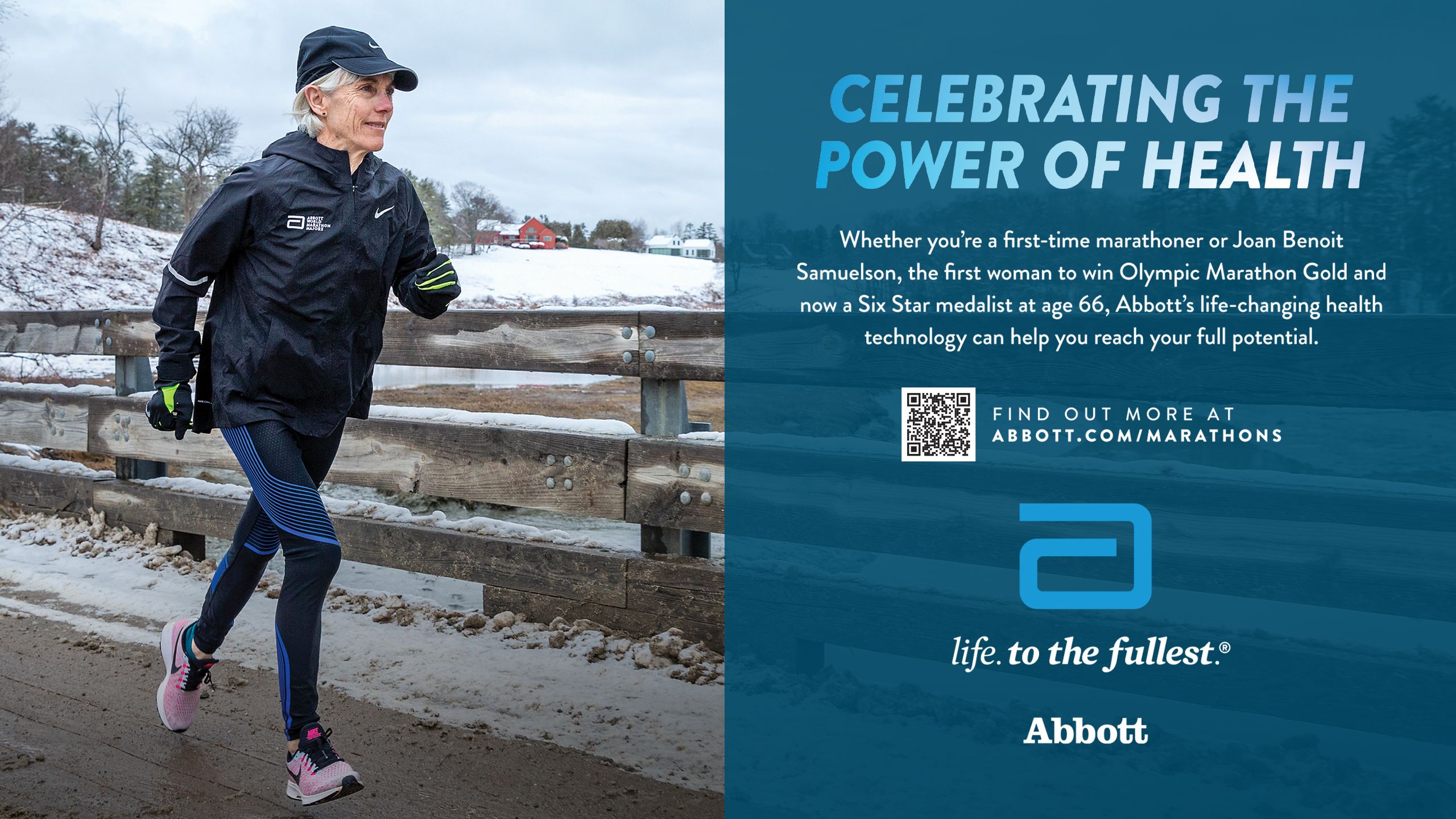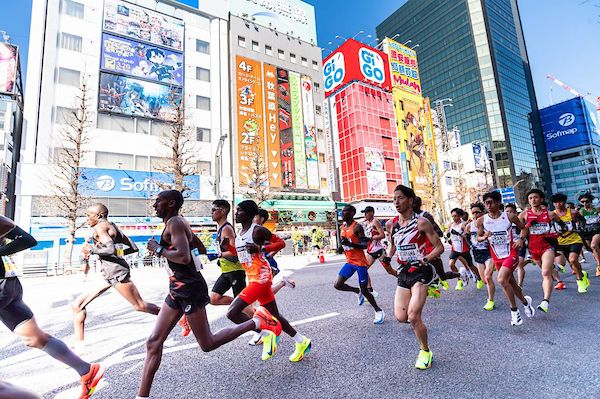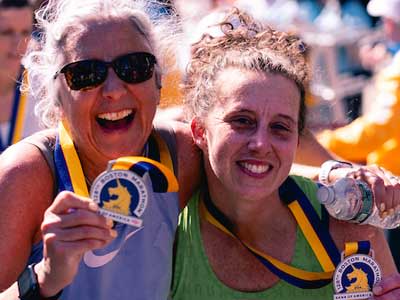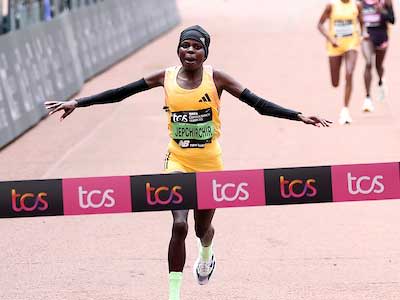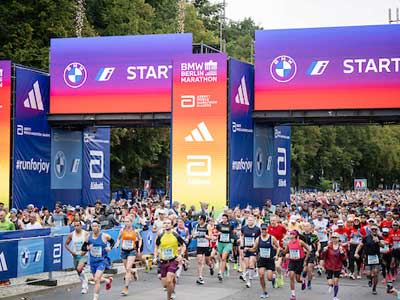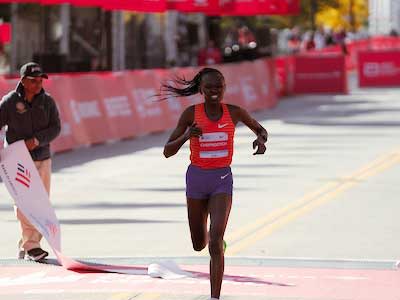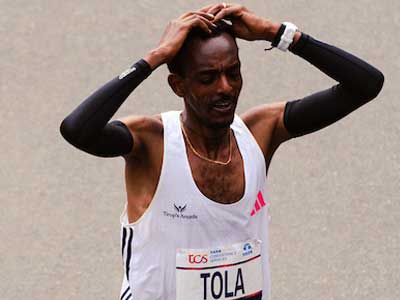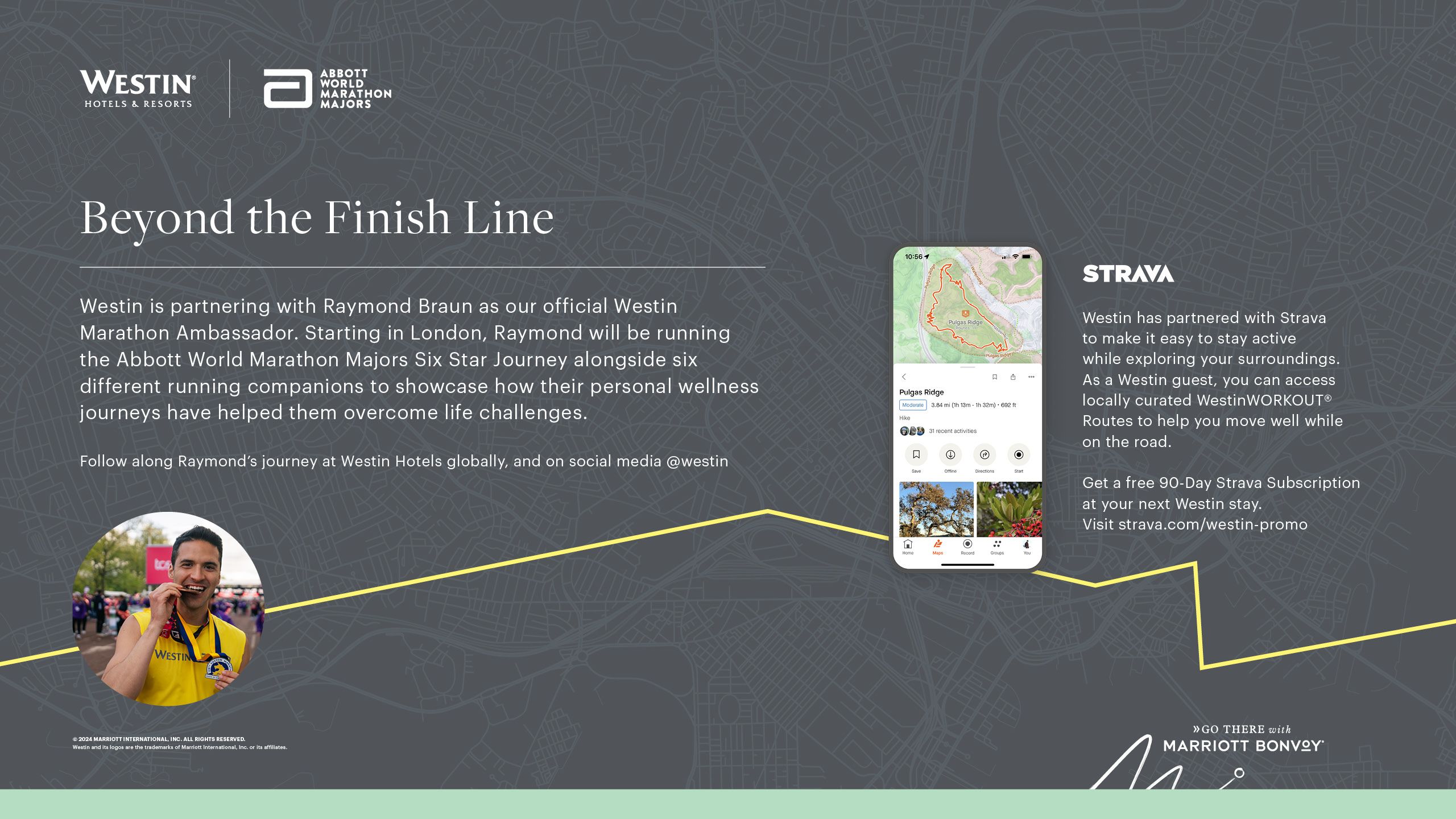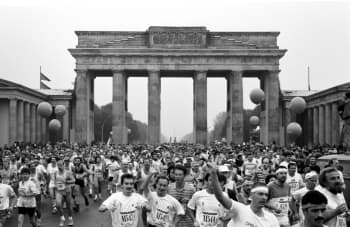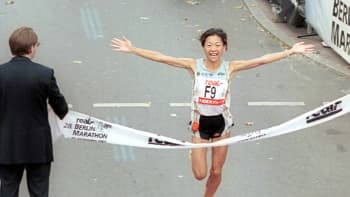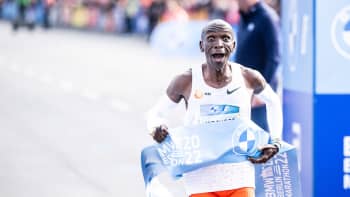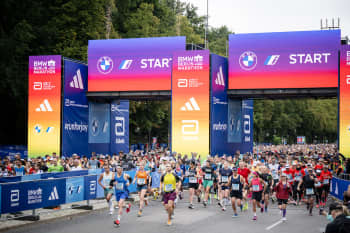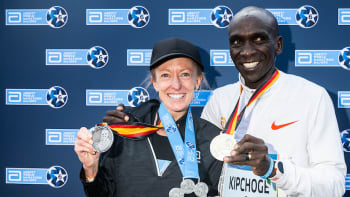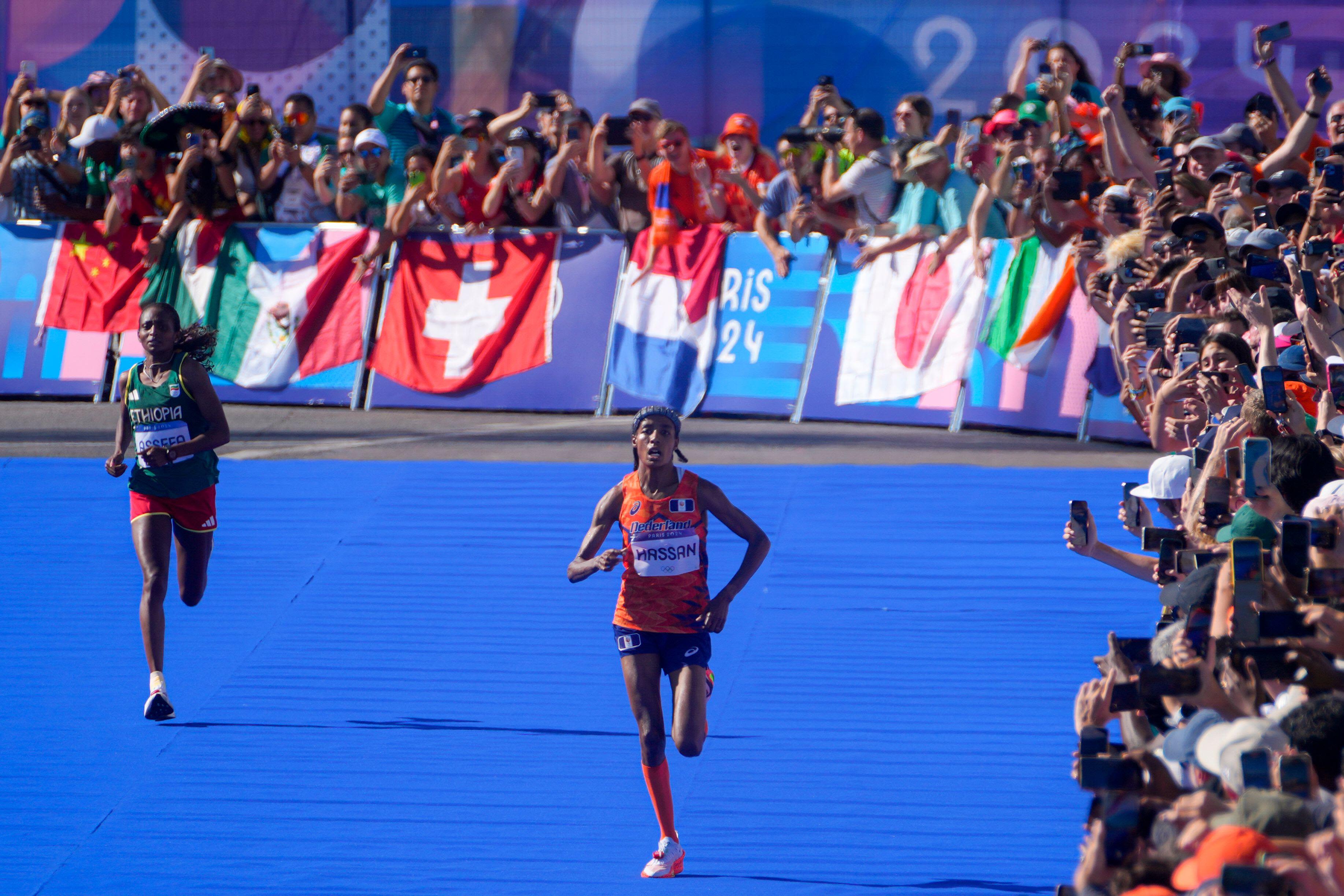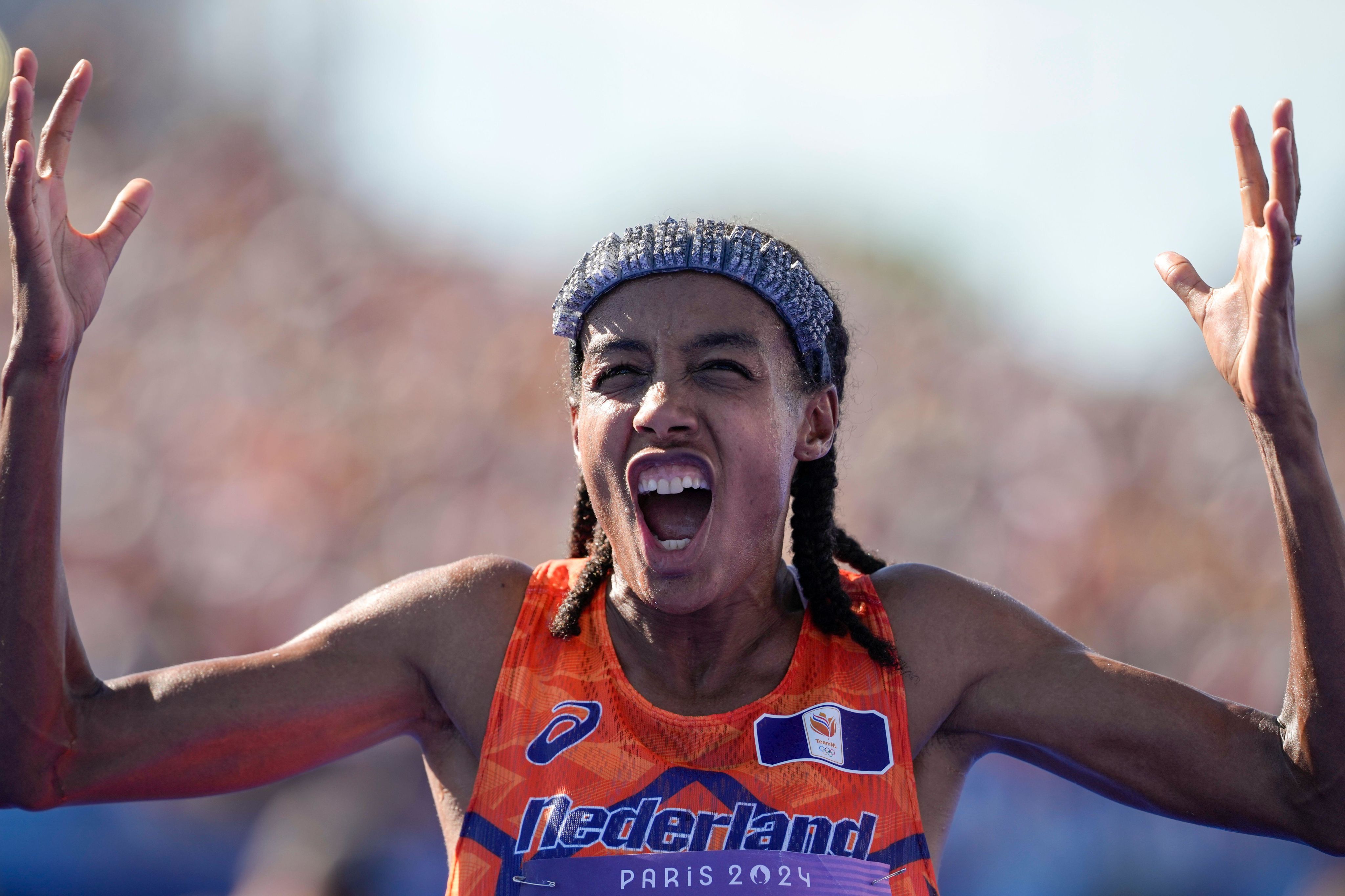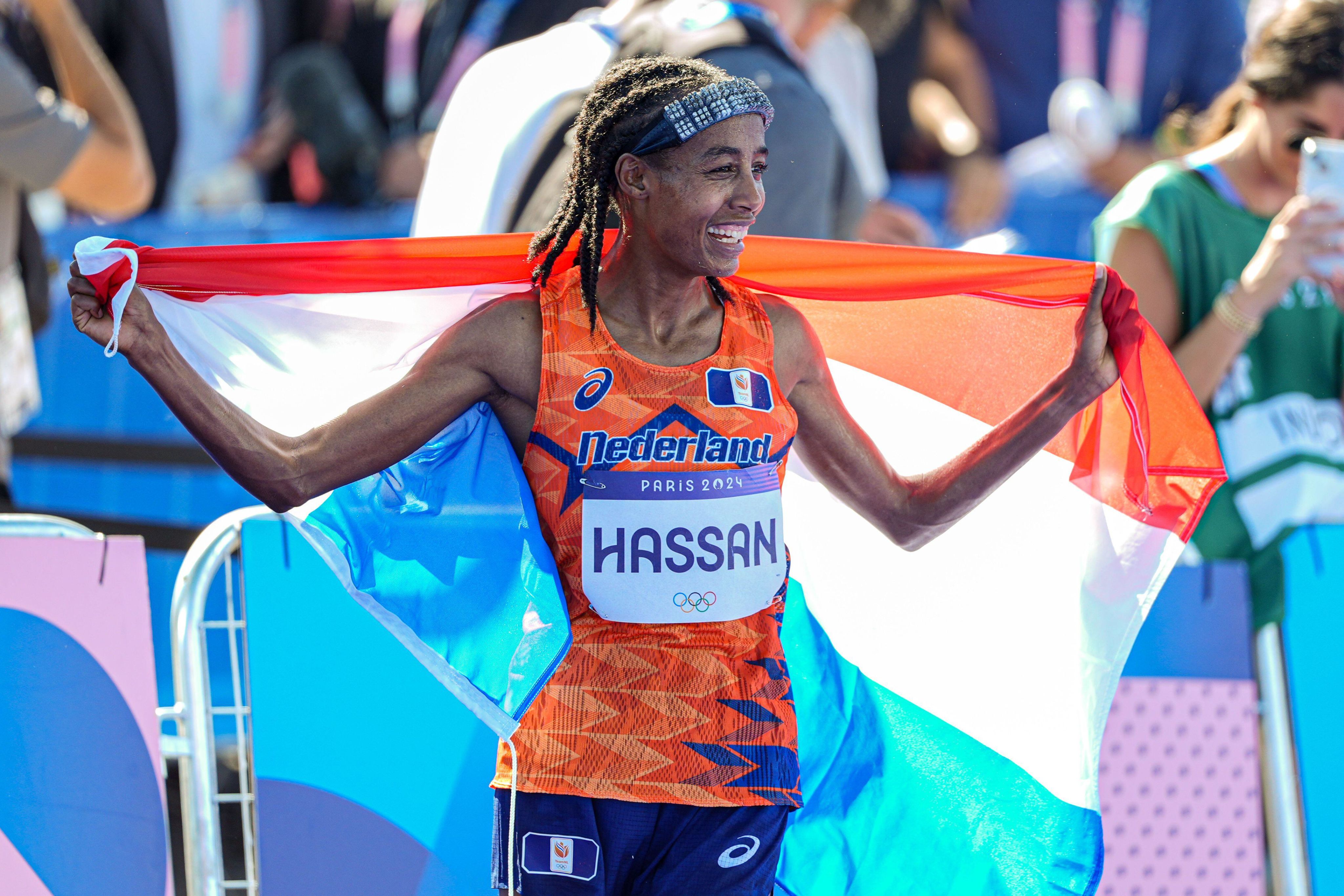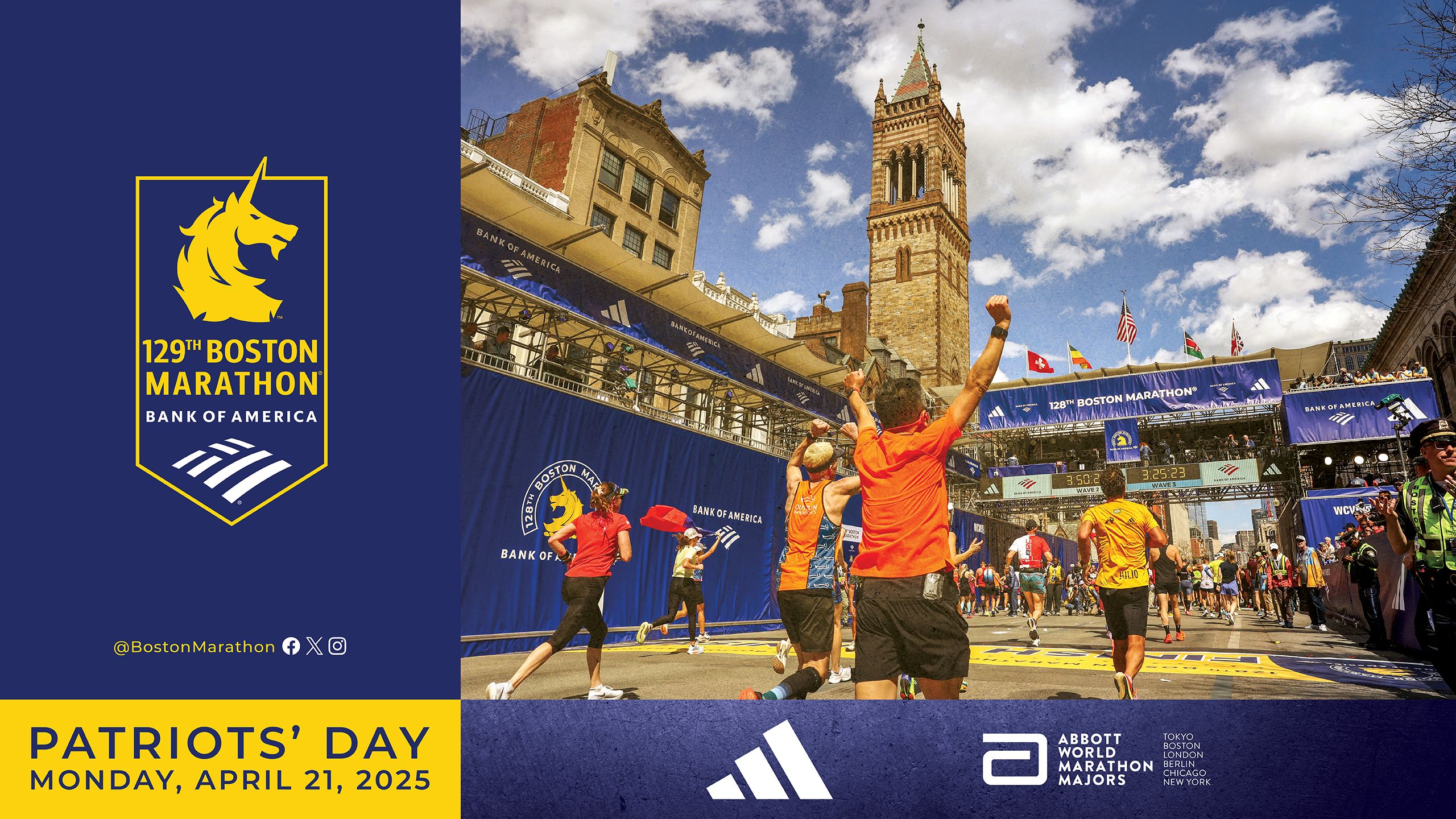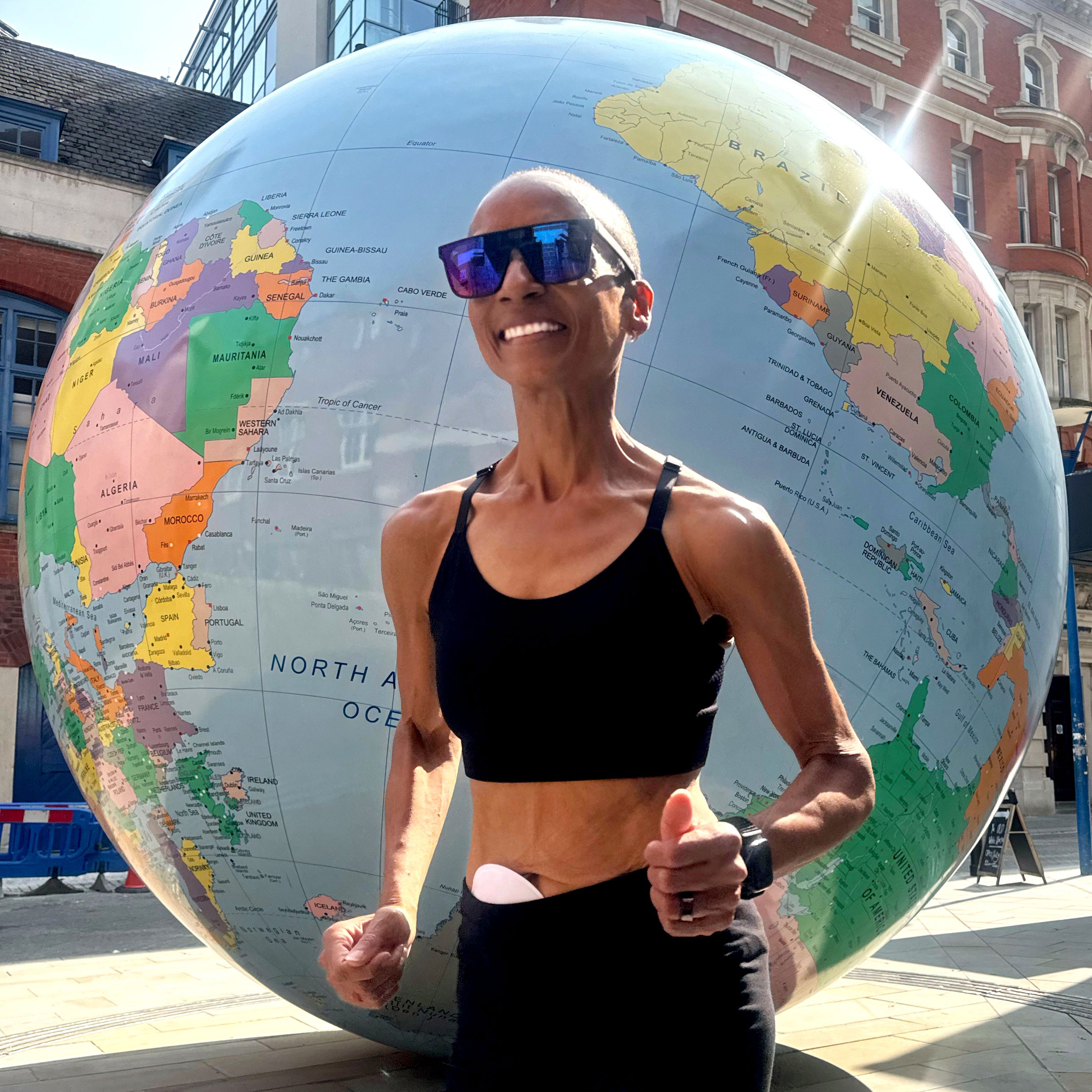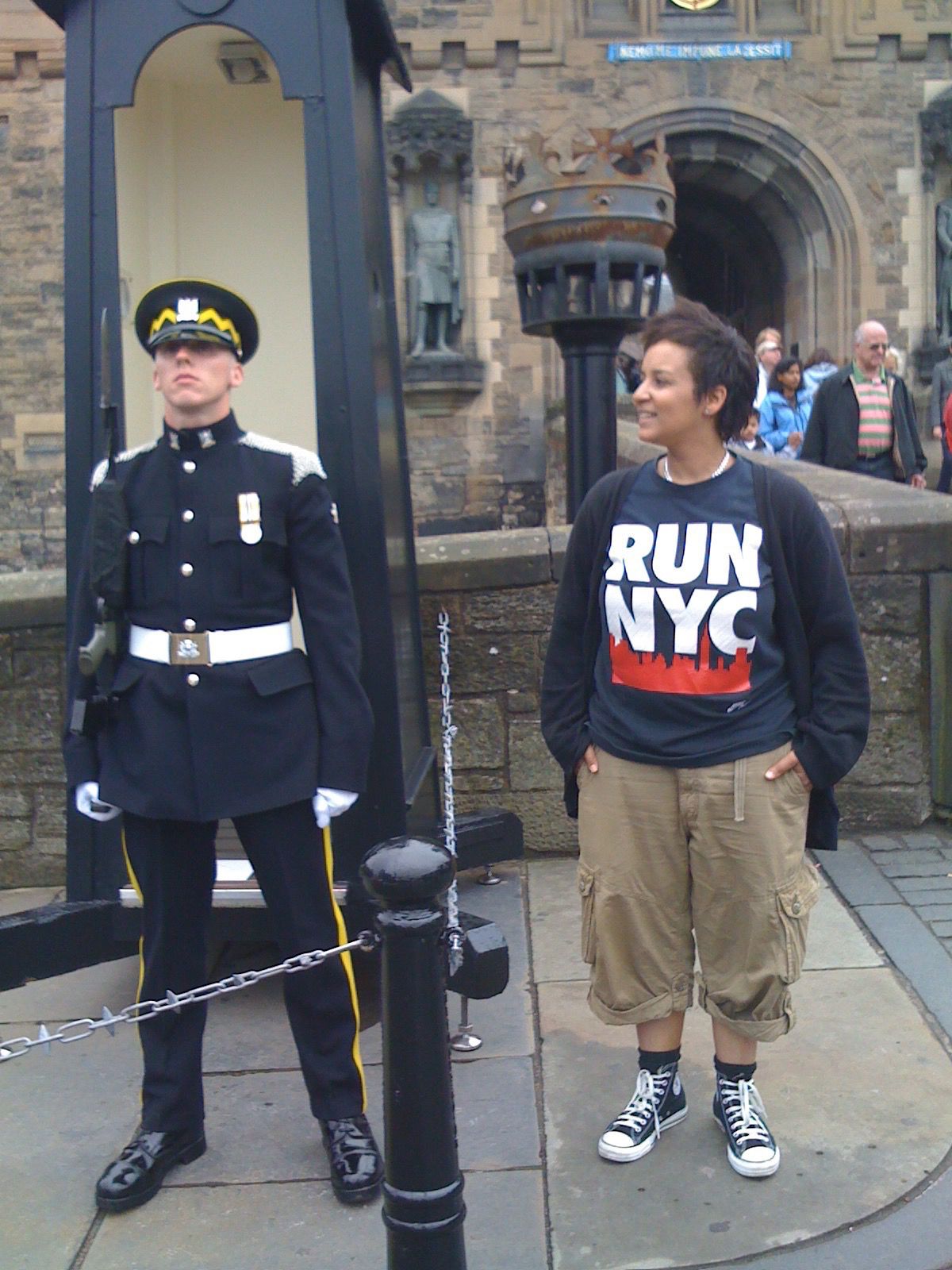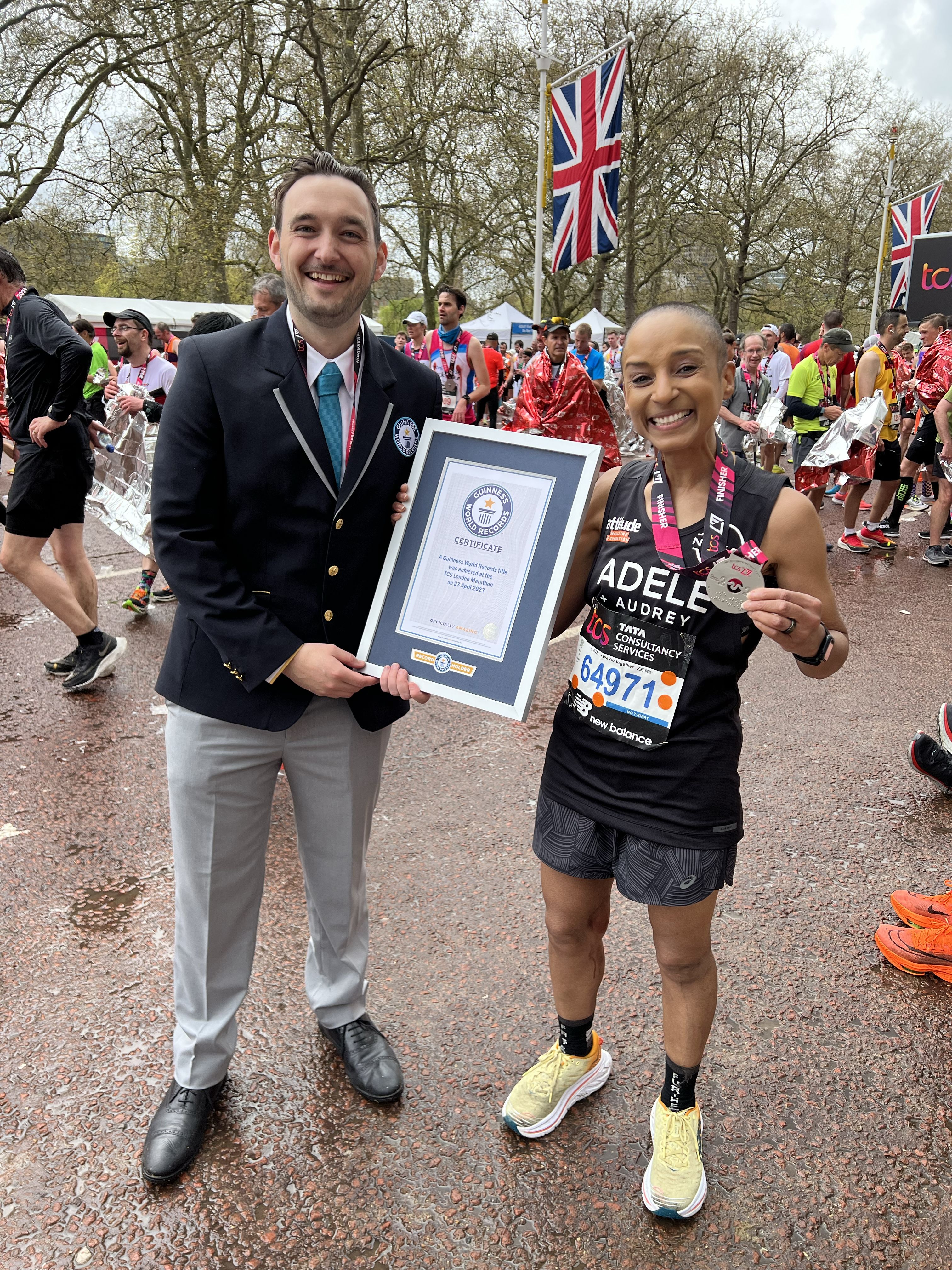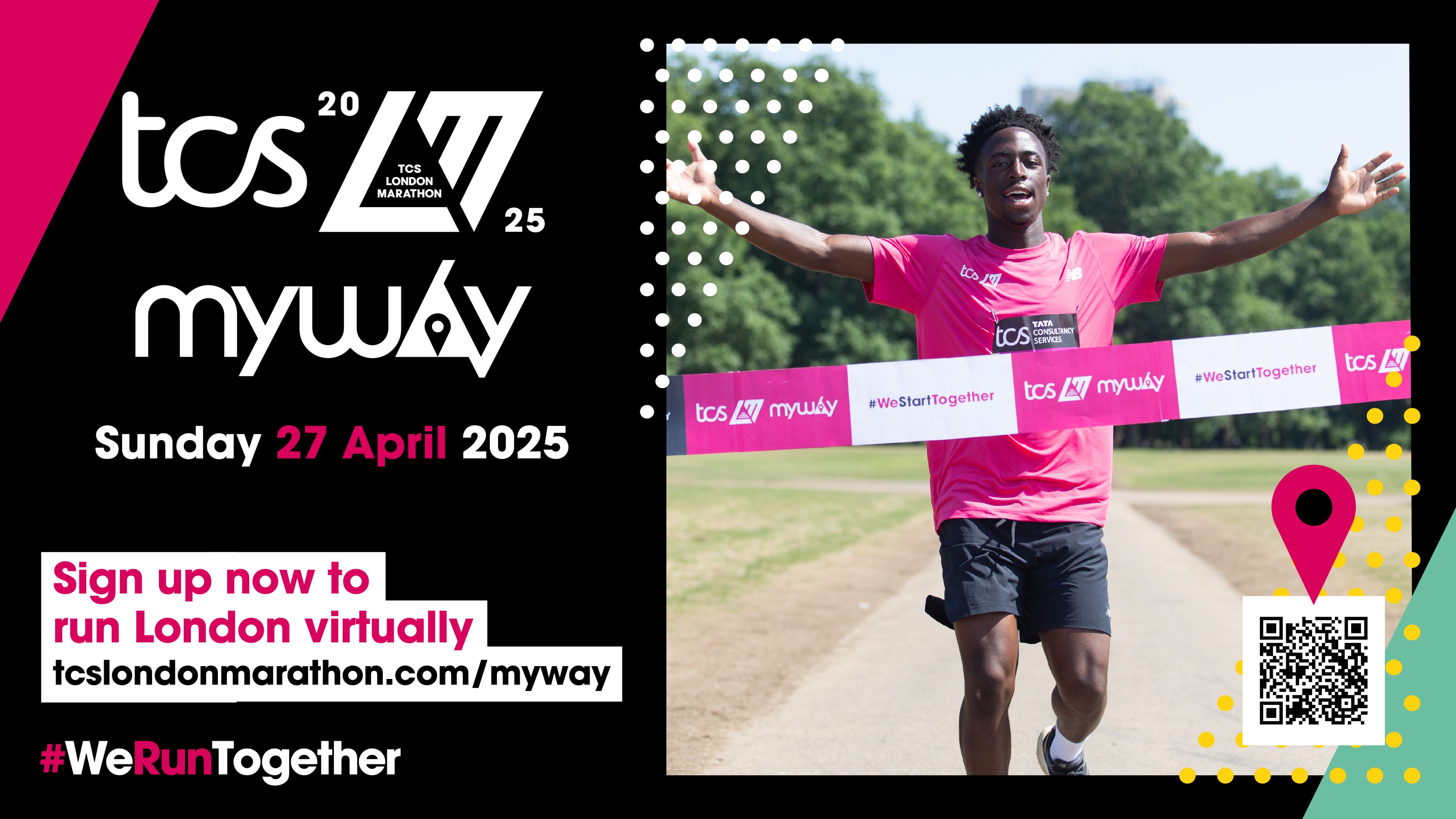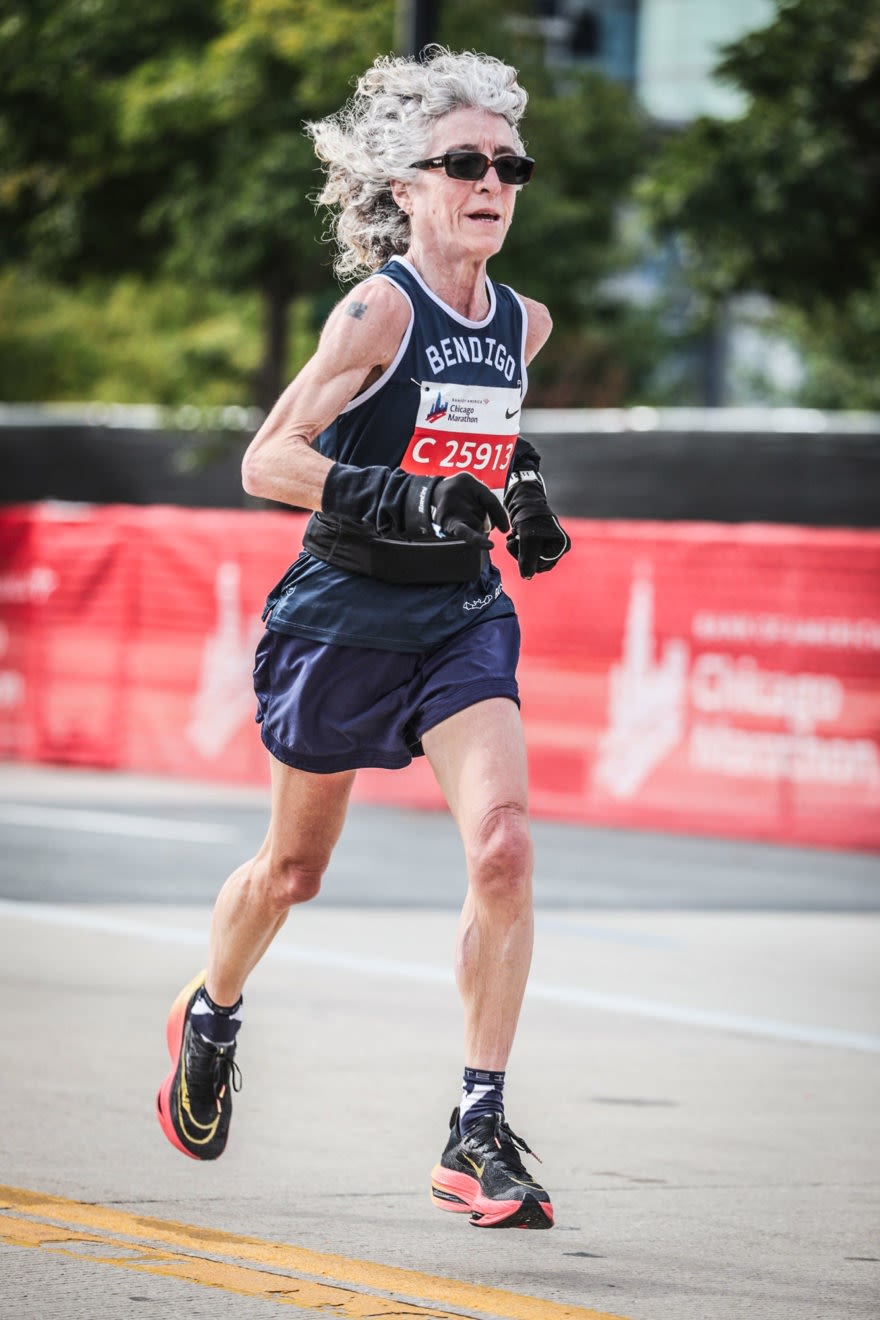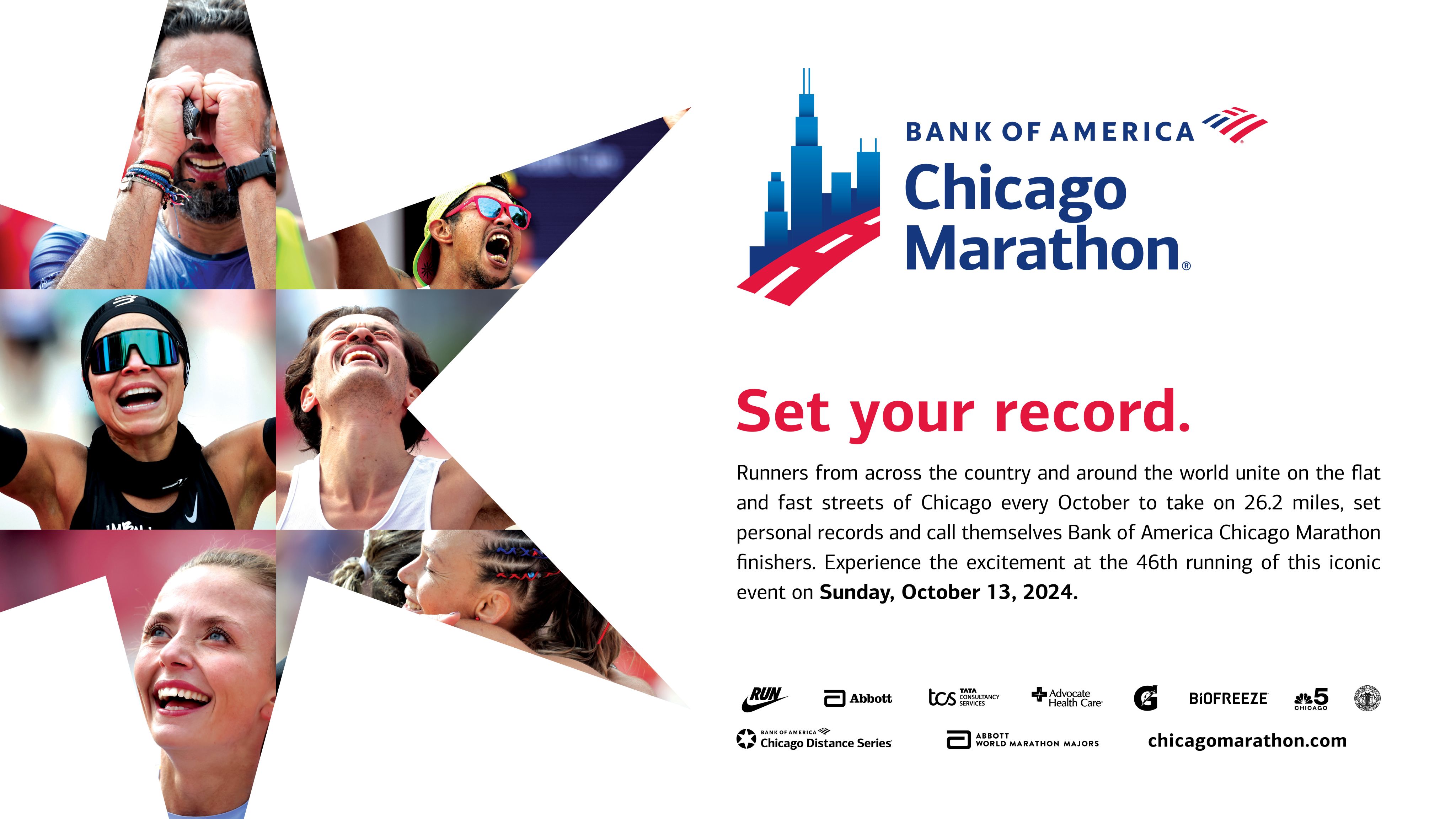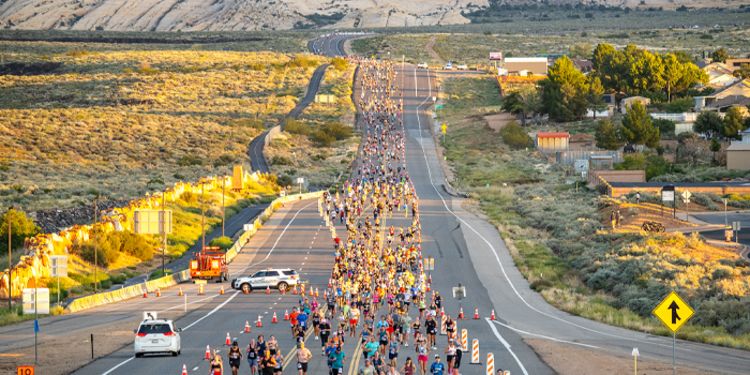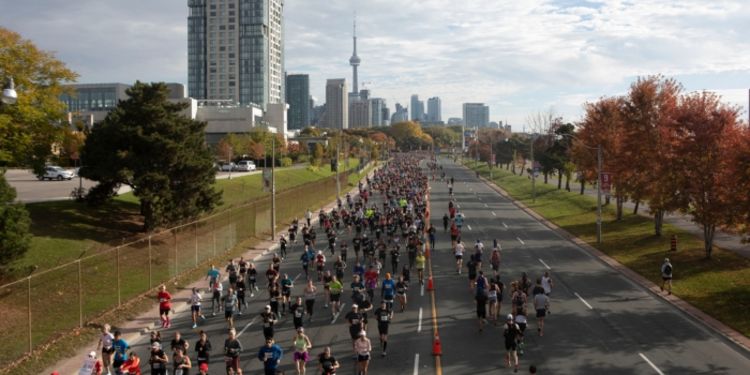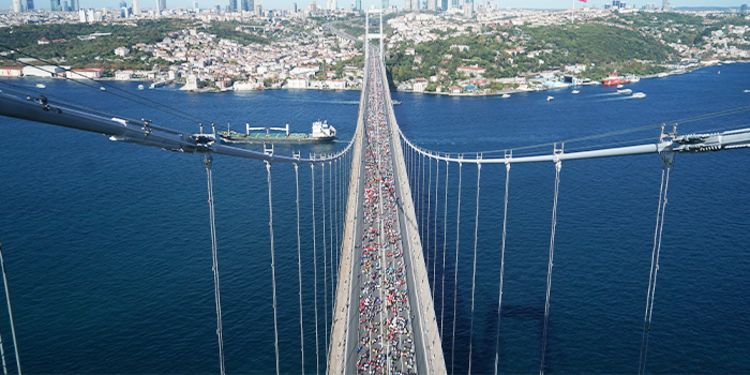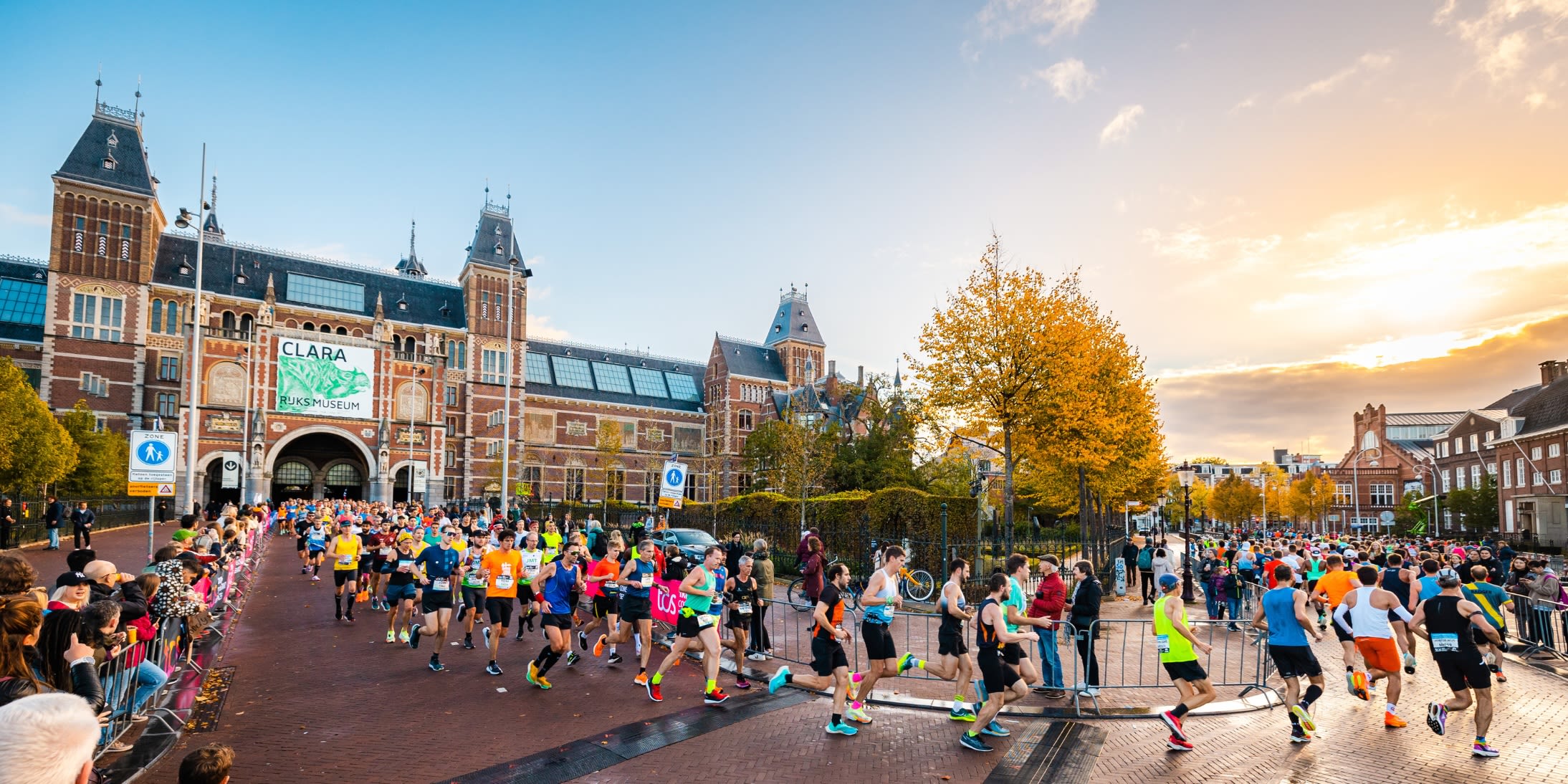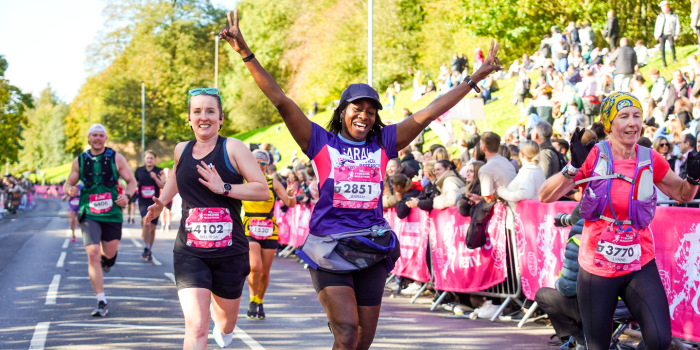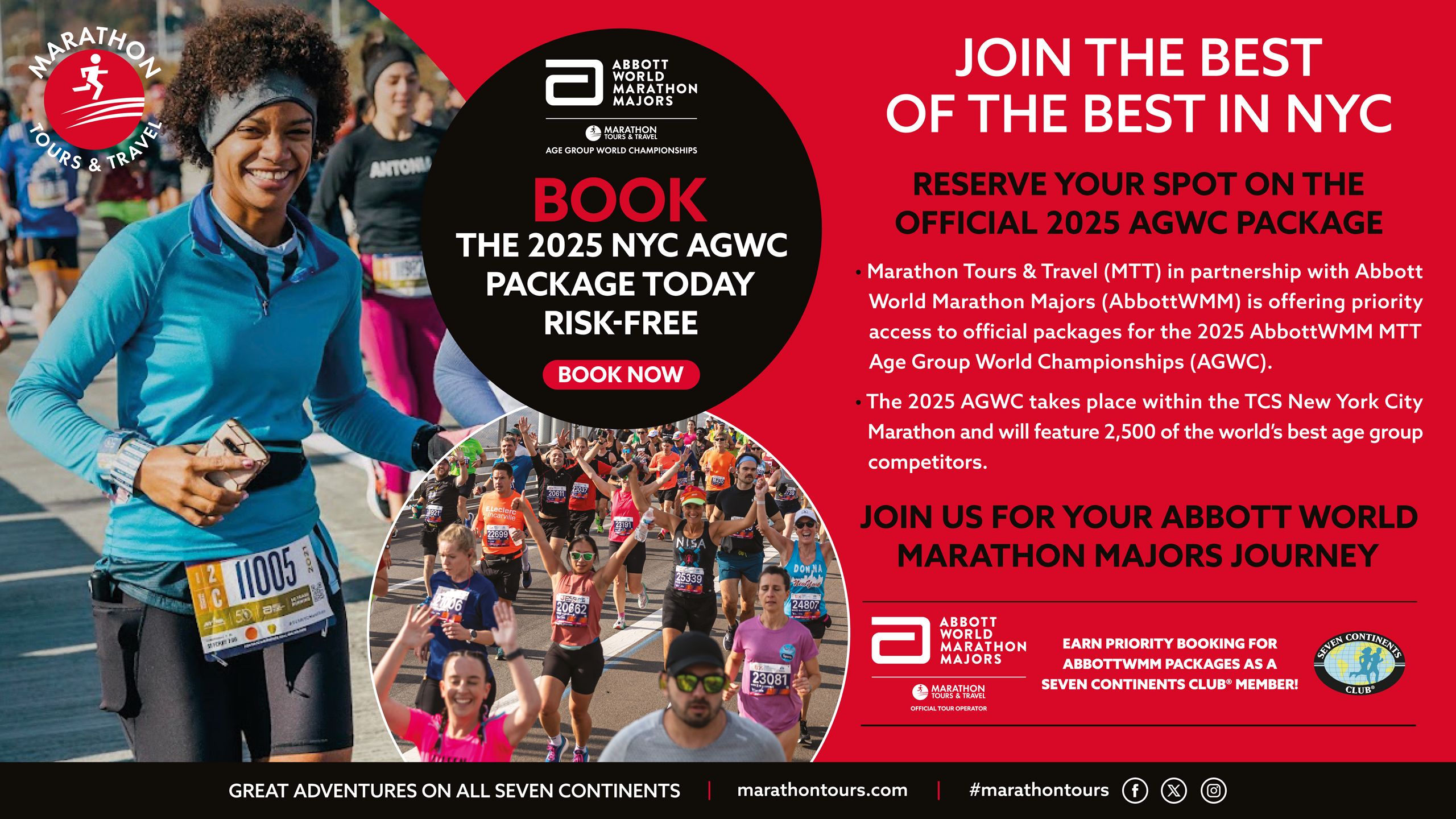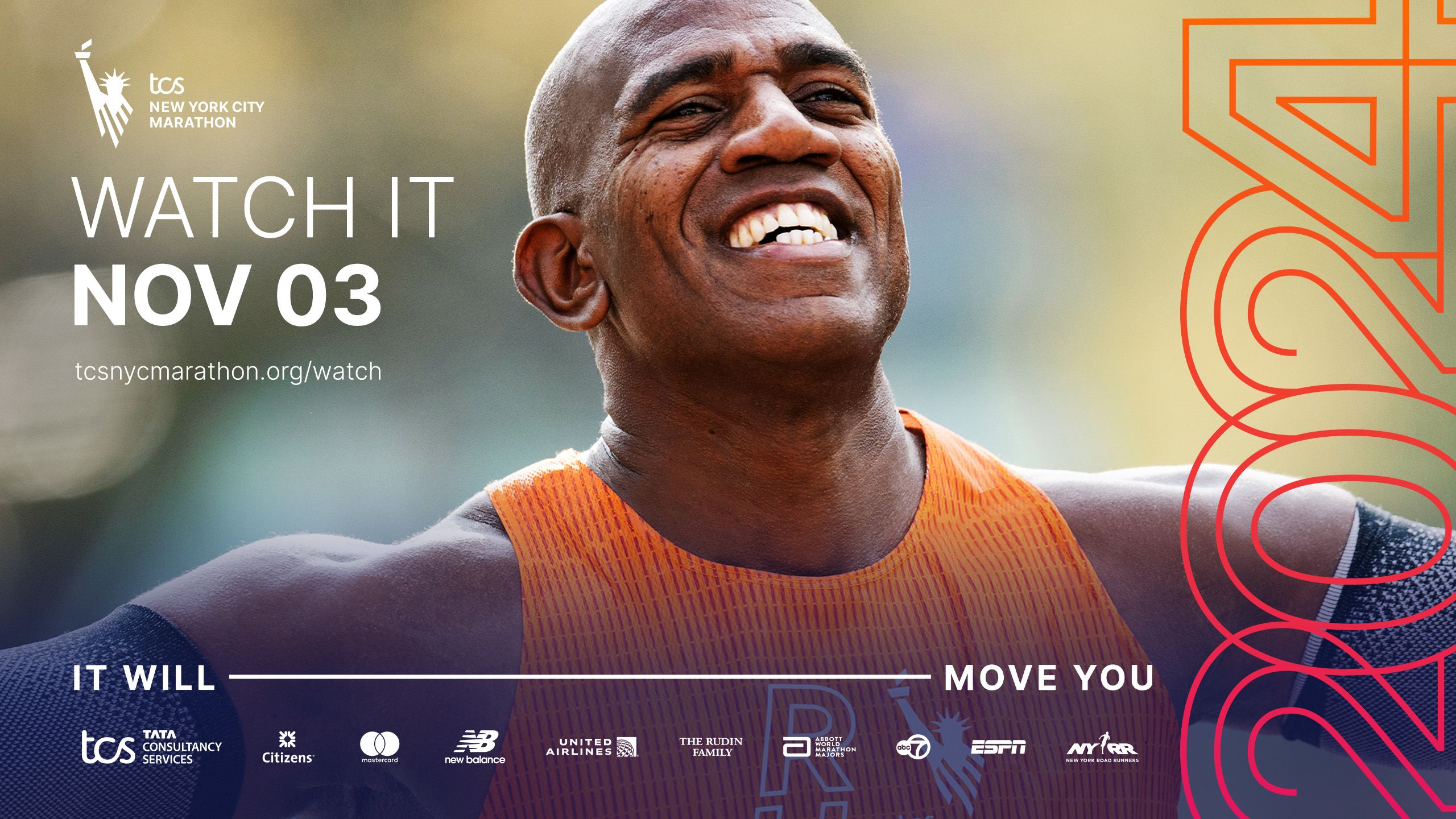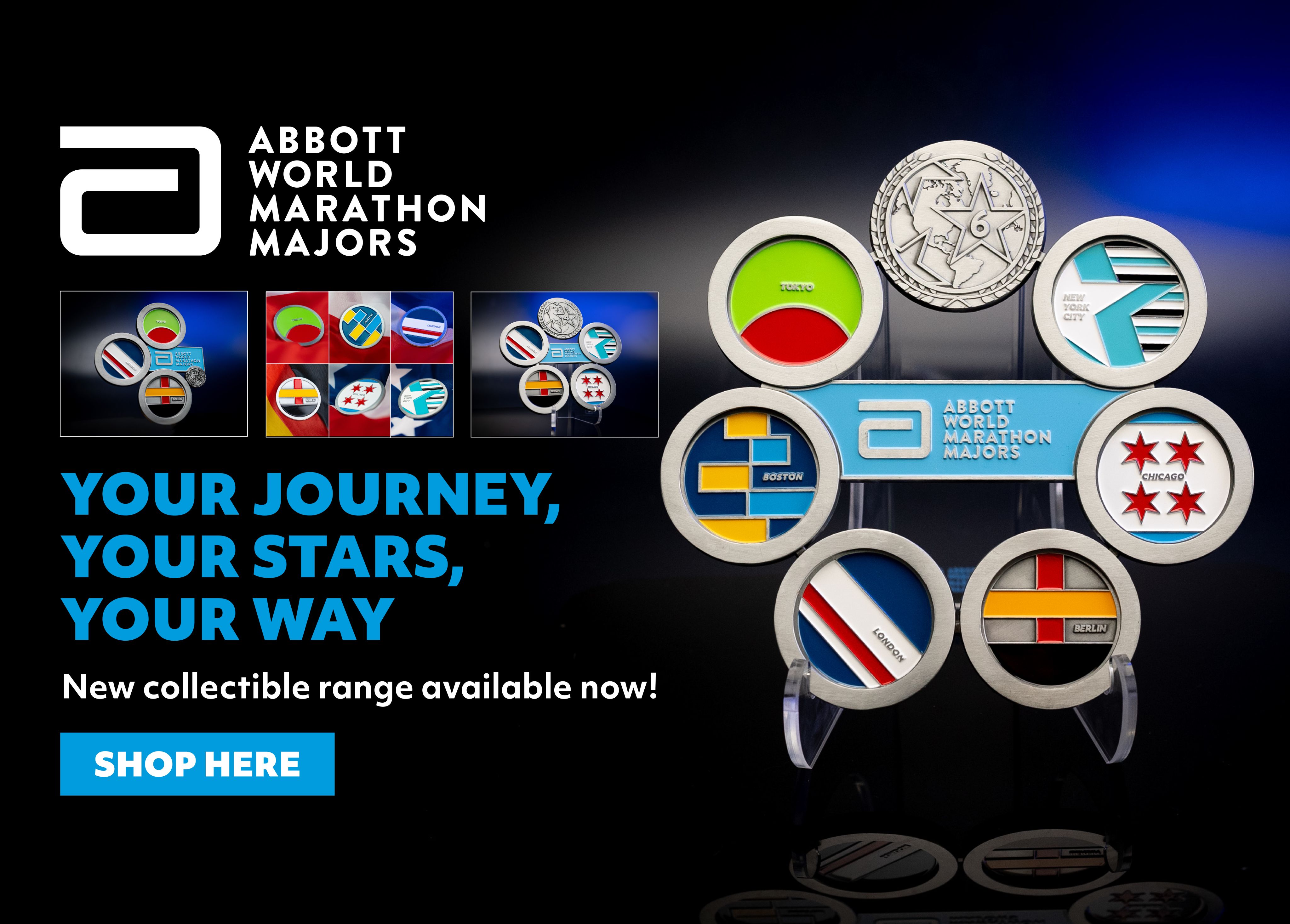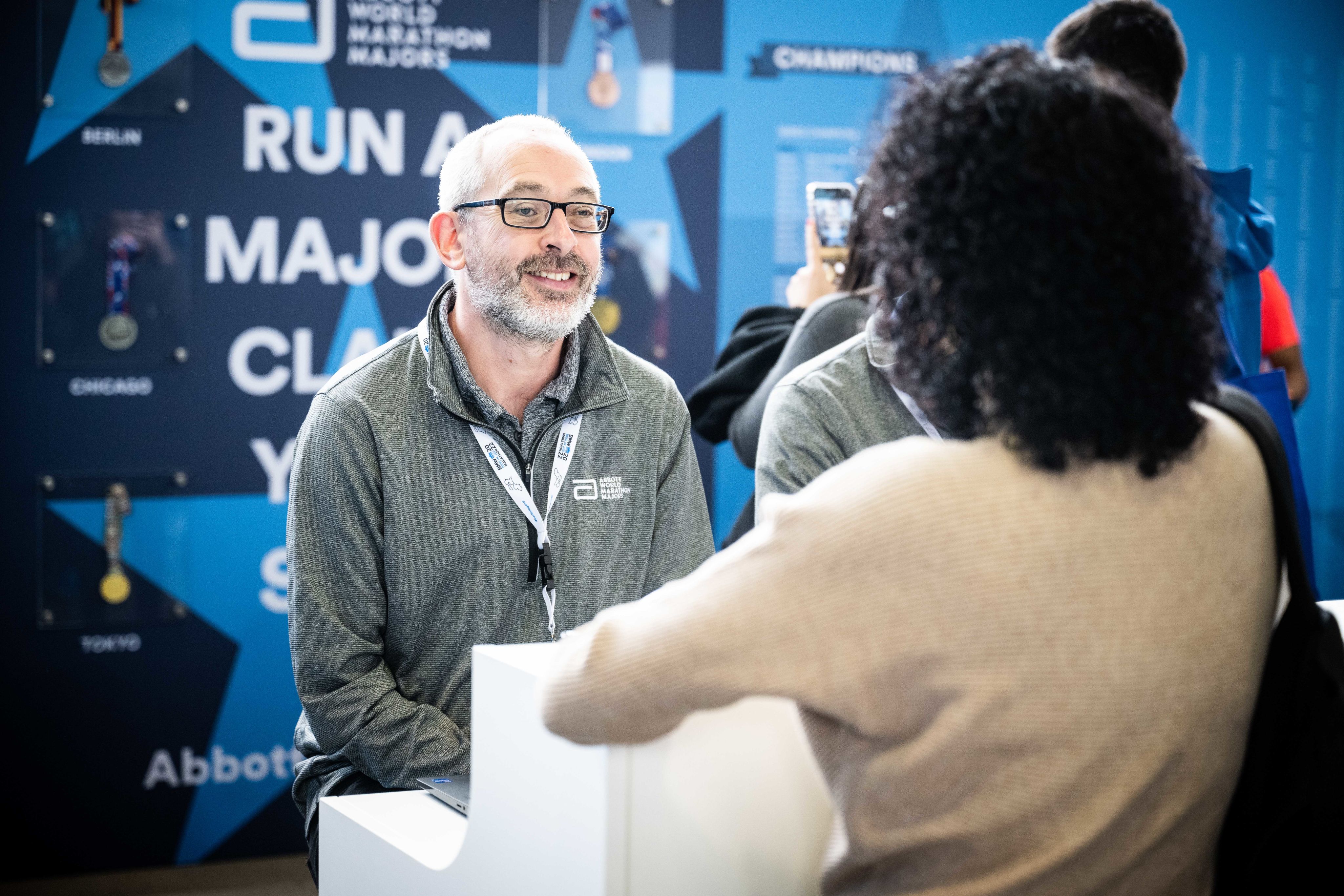
This edition of MAJORS comes to you as we embark on a hugely significant fall season for the Abbott World Marathon Majors.
As we bounce into our race program off the back of a thrilling summer Olympic and Paralympic Games, we cannot wait to see some more epic performances by our elite athletes.
In addition, our team is gathering at the TCS Sydney Marathon to deliver the AbbottWMM Marathon Tours & Travel Age Group World Championships.
It is the first time we have awarded the event to a race outside the Majors and we have been incredibly impressed with the time and effort the team has made to put on an amazing show for our age group runners.
But that’s not all. Our Majors evaluation team will also be in town to run the rule over the race as Sydney goes in search of its final successful assessment.
If the race secures its second pass, we will be welcoming them as the seventh Abbott World Marathon Major in 2025!
The BMW Berlin Marathon follows two weeks later with huge celebrations planned for its 50th race, and we then head to the Bank of America Chicago Marathon, another fast and flat course where records regularly tumble. I know we will all have in our minds the incredible world record performance of Kelvin Kiptum on Chicago’s streets one year earlier. His loss is still felt keenly by the marathon world.
After Chicago, I will be with some of our team at the Sanlam Cape Town Marathon as they go in search of the first pass in their candidacy campaign.
Our year will conclude at the TCS New York City Marathon in early November, where we will crown our elite champions and also surpass 17,500 Six Star finishers.
To summarize, it’s going to be a whirlwind few months!
I look forward to meeting many of you at these incredible races and hearing some of your stories. It’s one of the best parts of my job!
Dawna Stone, CEO, Abbott World Marathon Majors
The Image
Tamirat Tola was a late replacement in the Ethiopian team for the Paris Olympic Marathon, and promptly stormed to the gold medal accolade. He now owns World and Olympic gold, and will bid to defend his TCS New York City Marathon crown in November. No one has won back to back men’s titles since Geoffrey Mutai in 2011 and 2013 (2012 was cancelled due to Hurricane Sandy)
Image: Alamy Stock Photo
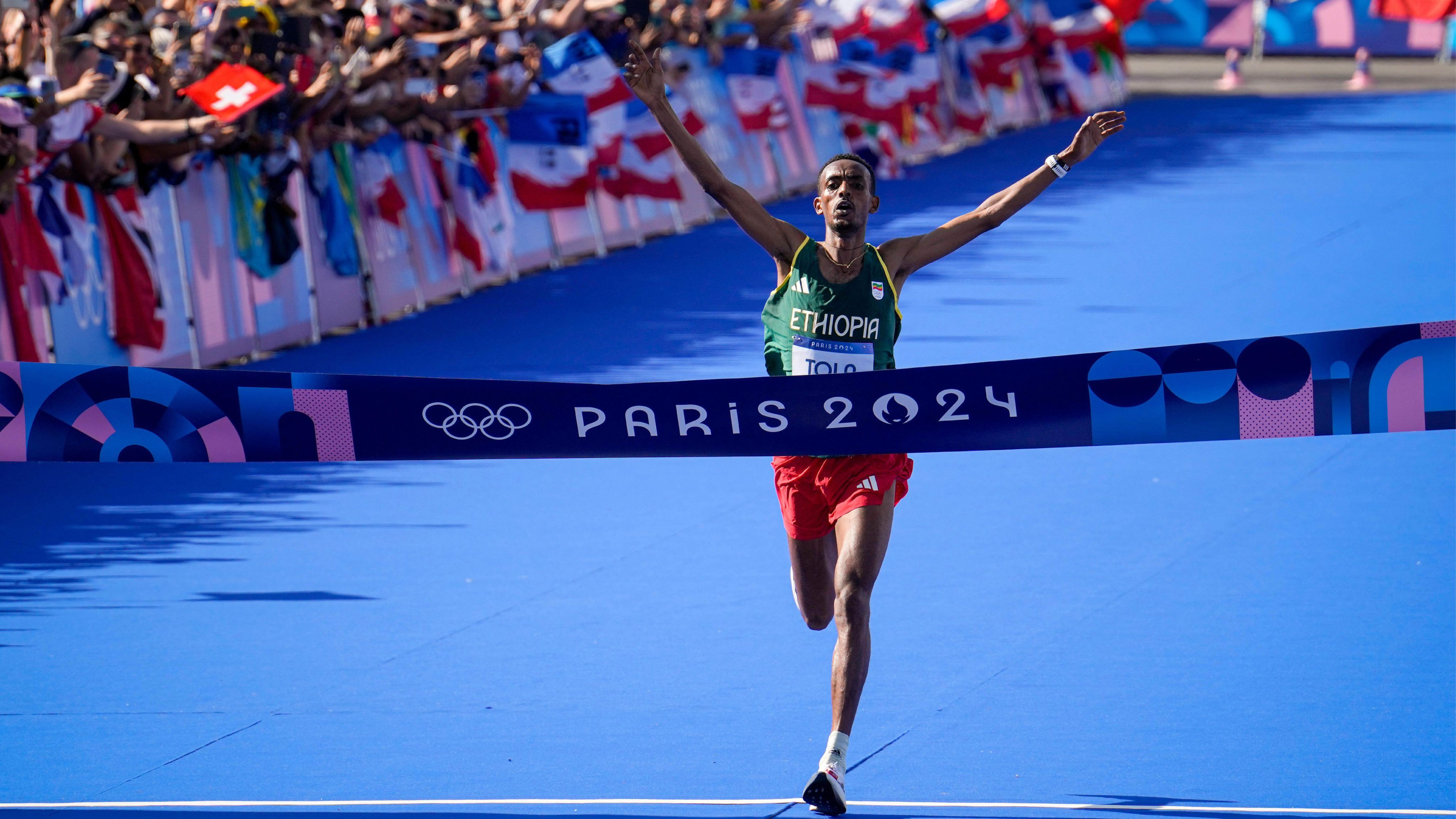
THE WARMUP
TOKYO
Are you waiting for Tokyo?
Entry selection results for the 2025 Tokyo Marathon are scheduled to be announced on September 20. Applications for entries closed in August. The 2025 race will also be the first event to include a non-binary category for entrants, and will include duos for the first time also which means all six Majors now offer that category.
BOSTON
It's BQ time for 2025 entries!
Qualifier registration for the 2025 Boston Marathon presented by Bank of America will be open between September 9 and 13.
The 129th edition of the world’s oldest continuously held marathon will take place on Monday, April 21 next year. The 2025 Boston Marathon qualifying window began on September 1, 2023, and will close at 5:00 p.m. ET on Friday, September 13.
LONDON
20 years since Radcliffe's reign
The 2025 TCS London Marathon will be the 45th edition of the race, and will mark 20 years since the last British female champion.
Paula Radcliffe claimed her third London title back in 2005 when she won in a time of 2:17:42, which was a women only world record that stood until Mary Keitany’s 2:17:01 in 2017. It was then lowered again in 2024 by Peres Jepchirchir who clocked 2:16:16 on The Mall in April.
BERLIN
Berlin sets sights on 50 for 50
Ahead of Berlin’s 50th anniversary race, organizers announced that Kenya’s Rosemary Wanjiru is returning to try and go one better than the second place she earned in the German capital in 2023. Wanjiru won the 2023 Tokyo Marathon before coming second in this year’s edition. She could be one of 50,000 finishers in the race as organisers aim for the largest ever finisher total to mark their milestone edition.
CHICAGO
Ruth ready for third Chicago victory bid
Kenya’s Ruth Chepng'etich will bid to win a third Bank of America Chicago Marathon title in four years at the 2024 race on October 13. She faces former London and New York champion Joyciline Jepkosgei, as well as Tokyo champion from March this year, Sutume Kebede, who ran 2:15:15 in Japan which is still the fastest time in the world this year.
NEW YORK
Obiri back to defend her Big Apple crown
Alongside Olympic men’s champion Tamirat Tola, Hellen Obiri, who also collected bronze in Paris, will be back to defend her TCS New York City Marathon title this November. Obiri has already doubled up with 2023 and 2024 Boston Marathon titles. Can she complete a second brace in the Big Apple?
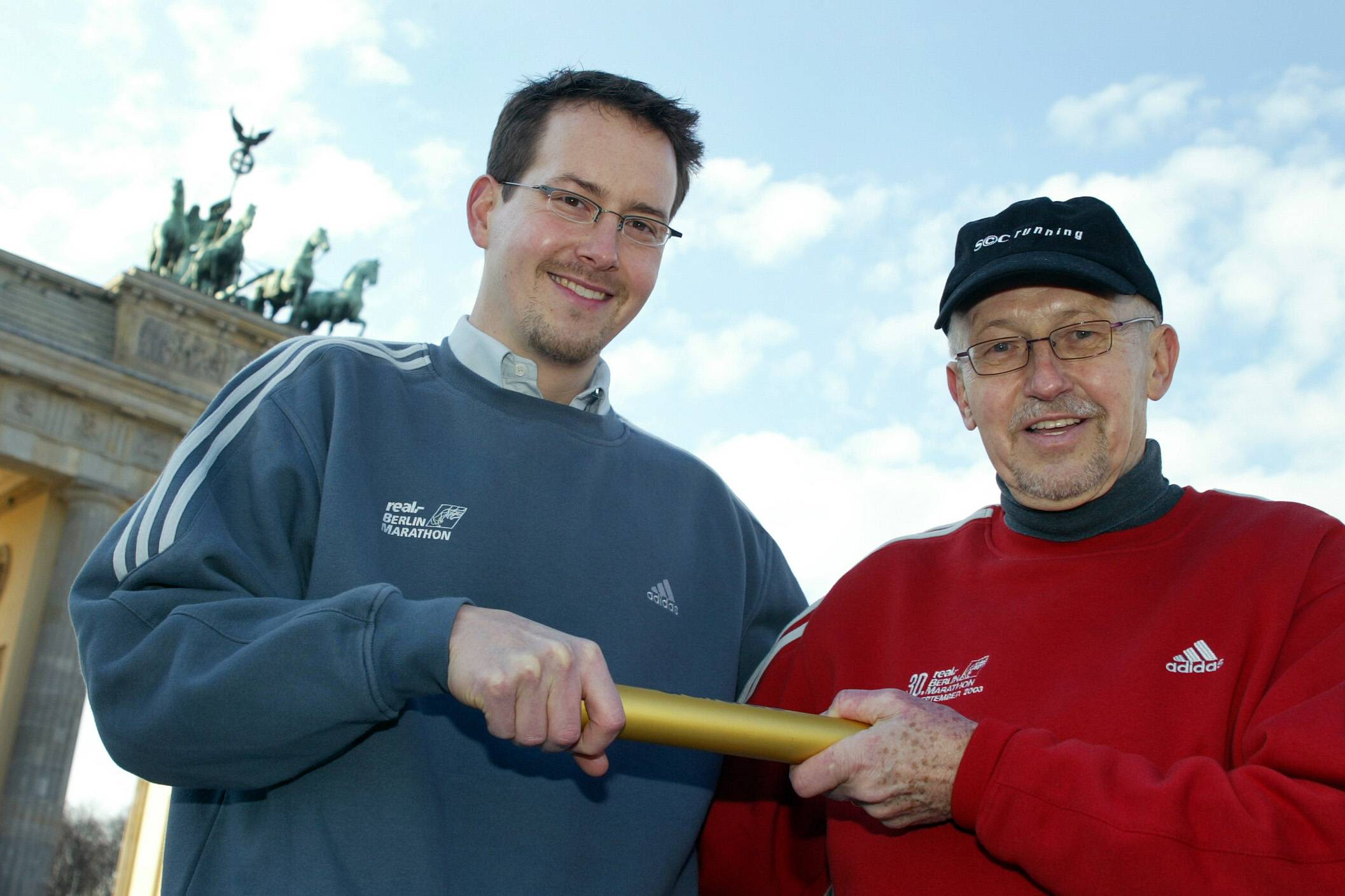
FATHER
TO SON
As Berlin prepares to celebrate the 50th running of its famous marathon, race director Mark Milde tells MAJORS how the race conceived by his father in 1974 has evolved into one of the best in the world
words: Danny Coyle
In September of 1974, a group of 276 runners from the Sports Club of Charlottenburg picked their way through the Grunewald Forest on the outskirts of Berlin.
A seven-year-old boy sat in the police car at the front of the race, as his father had instructed him to.
50 years later, the same boy will be out in front of the athletes on the back of a motorcycle, keeping an eye on the runners as he did all those years ago. His father will be watching on from the sidelines, no doubt filled with a sense of immense pride.
The BMW Berlin Marathon inhabits every fiber of Mark Milde, and it has done so since he sat in the family living room, licking stamps to attach to the envelopes containing press releases announcing the race.
“Hopefully I put them on the right way up,” he says.
The race, conceived by his father, Horst, all those years ago, arrives at a milestone on September 29 when it reaches its half century.
The aim is to welcome a record-breaking 50,000 runners across the finish line to mark the occasion. It will be a feat accomplished by a vast team of SCC staff and volunteers that dwarfs the small but committed band of volunteers who wrangled those early editions into existence.
“In the 70s there was not really anyone working full time,” says Mark. “There were only people doing it in their spare time, so a lot of it would be done at home, and we kids would help my dad, whatever we could do at the age of six or seven, licking the stamps and putting them on the envelopes.”
From office tasks, the young Mark graduated to helping at the race expo where he would hand out the runners’ bibs at the Intercontinental Hotel, where race week headquarters are today.
“I remember using same elevator we use today with my brother and my friend. We would ride up to the 14th floor, and just before the top you would jump and you would fly a bit higher as it stopped. We had the pasta party in that hotel too.”
The hotel now houses staff and athletes for race week, but the Expo has long since moved. It’s now at the former Templehof Airport, a sprawling site where echoes from Berlin’s past still resonate.
It’s where the likes of Kennedy and Luther King Jr landed during the Cold War to deliver their famous addresses and, more recently, was a temporary home to thousands of Syrian refugees.
It has been preserved exactly as it was; check-in desks, luggage carousels and all, with its vast airfields and runways open to the public to run, roller skate, kitesurf and more.
Berlin’s – and Germany’s – political history is a key feature of the marathon. The Berlin wall fell in 1989 and the official reunification of East and West Germany took place just a couple of weeks after the 1990 marathon. Fittingly, the women’s race that year was won by Germany’s Uta Pippig.
By then, Mark had continued to progress through the ranks of the race organization. Reunification opened up an opportunity to redesign the course, but even then, producing a quick 26.2 miles was a primary priority.
“We were starting with the Brandenburg Gate in the background, and we were running from Strasse des 17. Juni and through the gate after just three kilometers, then back to the old finish. So we were integrating some parts of East Berlin, but not fully, because at some stage it would go uphill, and we were already trying to have a fast course. That’s why we are not half and half east/west. We only have only six kilometers in the former east,” he explains.
The 1990 edition also saw volunteers from East Berlin integrated into the race staff for the first time.
“It was a big thing,” recalls Mark, “because a week or so before the official re-unification, we were running through the Brandenburg Gate and there were no borders.”
After a bumper year for numbers in that historic edition, growth returned to its more sedate trajectory. It received another boost with the 25th race in 1998.
Towards the end of Germany’s first decade as a reunified nation, from stamp-licking to bib distribution and all jobs in between, Mark's move into organizing the elite fields was complete.
His focus was to identify the runners – and the extra, minor details of the race – to establish Berlin as the fastest place in the world to run a marathon.
“I didn’t have the background of being fast myself, I ran 2:50 for the marathon, but there was a passion for the sport,” he says.
“I enjoyed working on small details to make the records more possible, and there was always healthy competition with the other races. We were looking at the times Chicago had and what we had, and that inspired me to do more.”
Certain learnings from other races are still in use today in that quest for records, such as a drinks station strategy copied from the Rotterdam Marathon that deploys cyclists to follow their athlete and ensure they receive the right bottle.
Observers of Eliud Kipchoge’s records in Berlin will be familiar with the man known as Bottle Klaus and his manic celebrations every time he hopped off his bike and successfully handed the Kenyan his fluids.
“And we are the only race giving out drinks to the elite athletes at 13 rather than eight positions. These small details help us to be better than others in some areas,” he adds.
But the finest details in the world matter little if they are not matched with the finest runners. This is where Milde Jr has excelled.
After Christa Vahlensieck ran a world best in 1977, there was no impression on the record books in Berlin until 1998, when the floodgates opened with Ronaldo da Costa’s 2:06:05.
One year later, Mark took over the elite recruitment, heralding a further 11 world records across the men’s and women’s able-bodied division from then until 2023.
“The breakthrough was with (Naoko) Takahashi in 2001, that was when we established ourselves as the world record course,” he says.
The Japanese athlete had arrived in Berlin as the women’s Olympic champion from the previous summer and became the first woman to run sub 2:20 for the marathon in Berlin, taking the record from Tegla Laroupe, who had set it on the same streets two years earlier.
The women’s wheelchair world record also currently resides in Berlin after Catherine Debrunner smashed it in 2023 along with the next three athletes behind her.
That has been the story of the race since the dawn of the 21st century, with the rise of the East African nations fueling a string of barrier-breaking moments.
Berlin’s record list is littered with the legends of the sport, from Paul Tergat and Haile Gebrselassie to Kipchoge. His 2:01:39 in 2018 was the first sub 2:02 marathon on a record-eligible course.
He followed it with 2:01:09 in 2022. In 2023 Tigst Assefa demolished the women’s mark with her 2:11:53, just two weeks before the men’s record crossed the Atlantic and back into Chicago’s possession thanks to the late Kelvin Kiptum’s astonishing 2:00:25.
Since 2004 Mark has had the title of Race Director after Horst handed the baton – literally in the photoshoot that accompanied the announcement – to his son.
Two years later he had a seat a the top table as the World Marathon Majors was born, joining London, Boston, Chicago and New York City to forge a new series that would reward the best in the world with series prize money.
“I think the name was produced at some bar, I was not there! My first reaction was ‘it works but it’s not that great!’
“At the time it was about the elites, offering big prize money and trying to establish the brand and to tie the elites more closely to us.
“We were successful in that, although it was complicated to understand. Now with the new era in shoe technology and better training and recovery, they can compete consistently.
“But we also saw in Berlin that more south Americans were coming, they would see us at the New York Expo, for example, and become interested. That shifted our attention to begin to think about the masses moving from one race to another.”
It was this shift that gave Mark the impetus to design the first draft of what would become the Six Star program, which began life with the working title of the 'WMM Fitness Runner'.
The original document even suggests 'Runners who have completed all WMM races in a period of two or three years will receive a special medal of honor'.
He was on to something, and as the idea developed, Berlin's team assumed the duties for sending out physical certificates to the finishers of all five races, and as the internet became more important, an online list was created.
Fast forward 10 years after the Majors were formed, with Tokyo then in the fold, the Six Star medal was created, and has become the most coveted piece of hardware in marathon running.
The series has become a quest for hundreds of thousands of runners aspiring to complete their own Six Star journey, as Abbott assumed the role of title sponsor, and even some of the greats of the sport have now pursued it as a goal.
Edna Kiplagat, Deena Kastor and Sara Hall have all earned theirs in Berlin, and in its 50th race, more than 150 new Six Star Finishers will be collecting their medal as the worldwide total creeps towards 17,500.
Back at the front end of the field, this will be the first race since 2014 that has featured neither Kipchoge nor Kenenisa Bekele, and with the race so close to the recent Olympic marathon, the best in the world are still recovering. Taking the men’s world record back may have to wait.
It all points to new names emerging on September 29, perhaps to write a new chapter in this famous old race’s history.
On its big birthday, in a city that knows a thing or two about reinvention, spearheaded by a man steeped in history but who is no stranger to breaking new ground, that all seems incredibly appropriate.
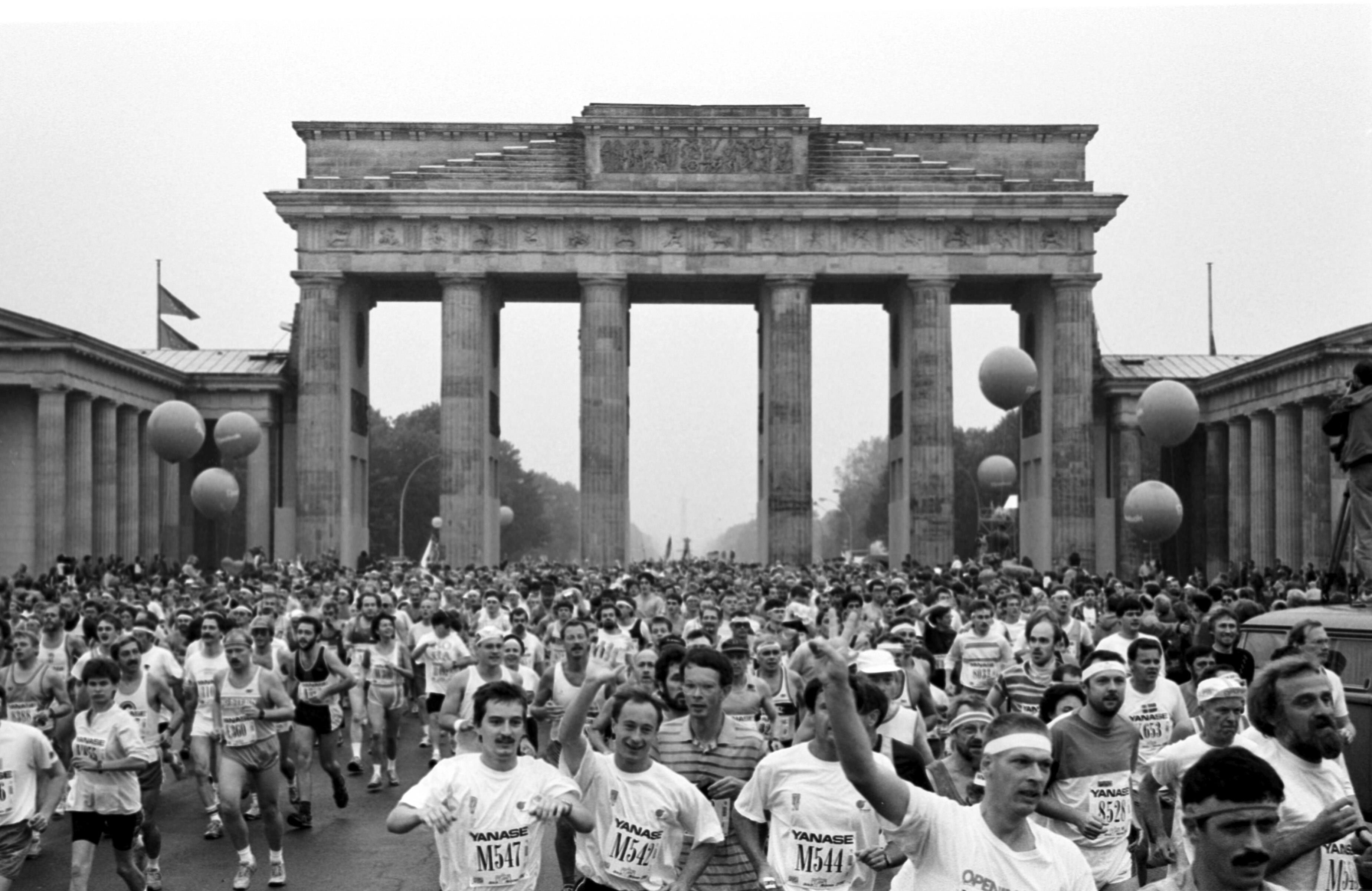

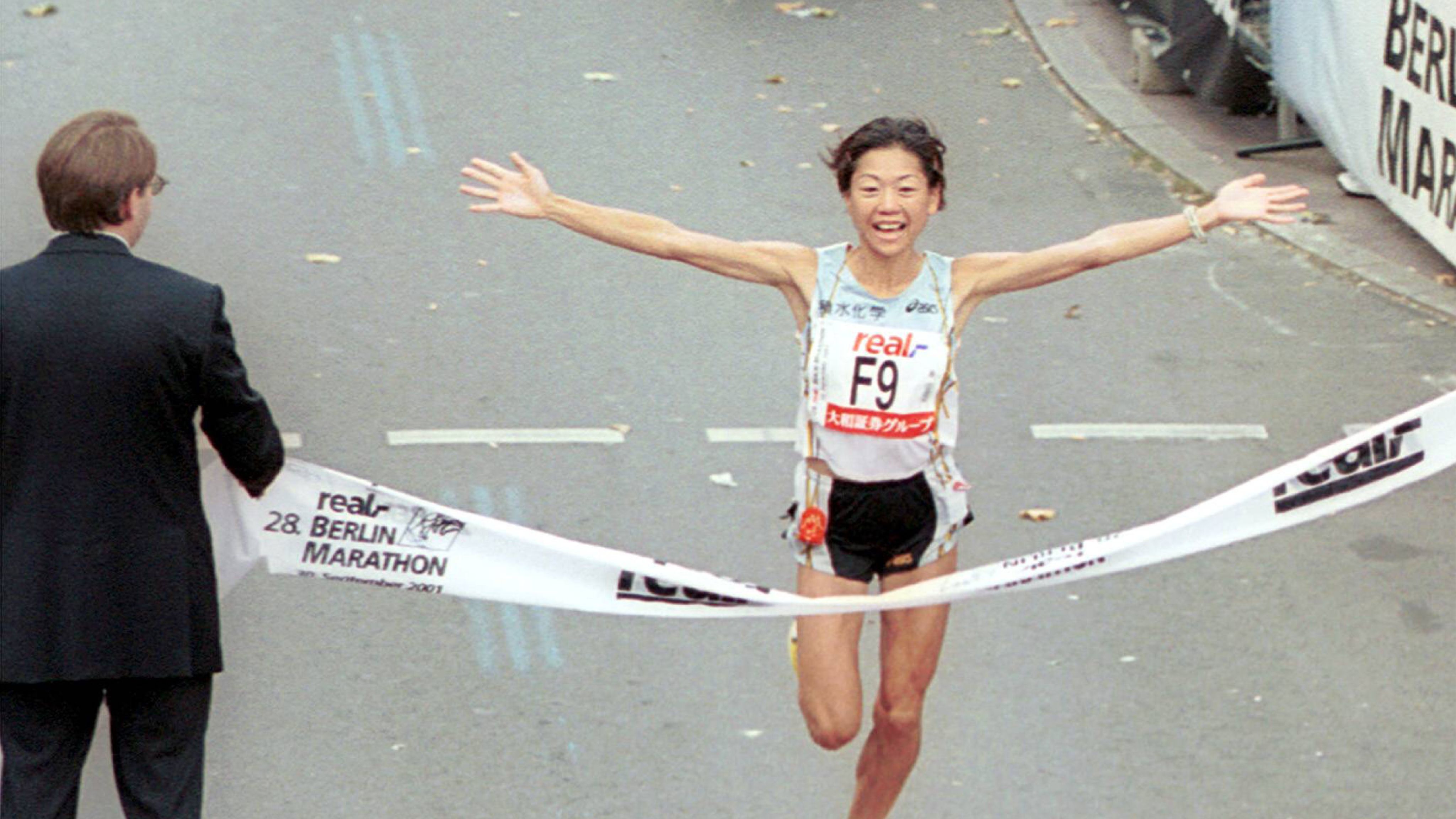
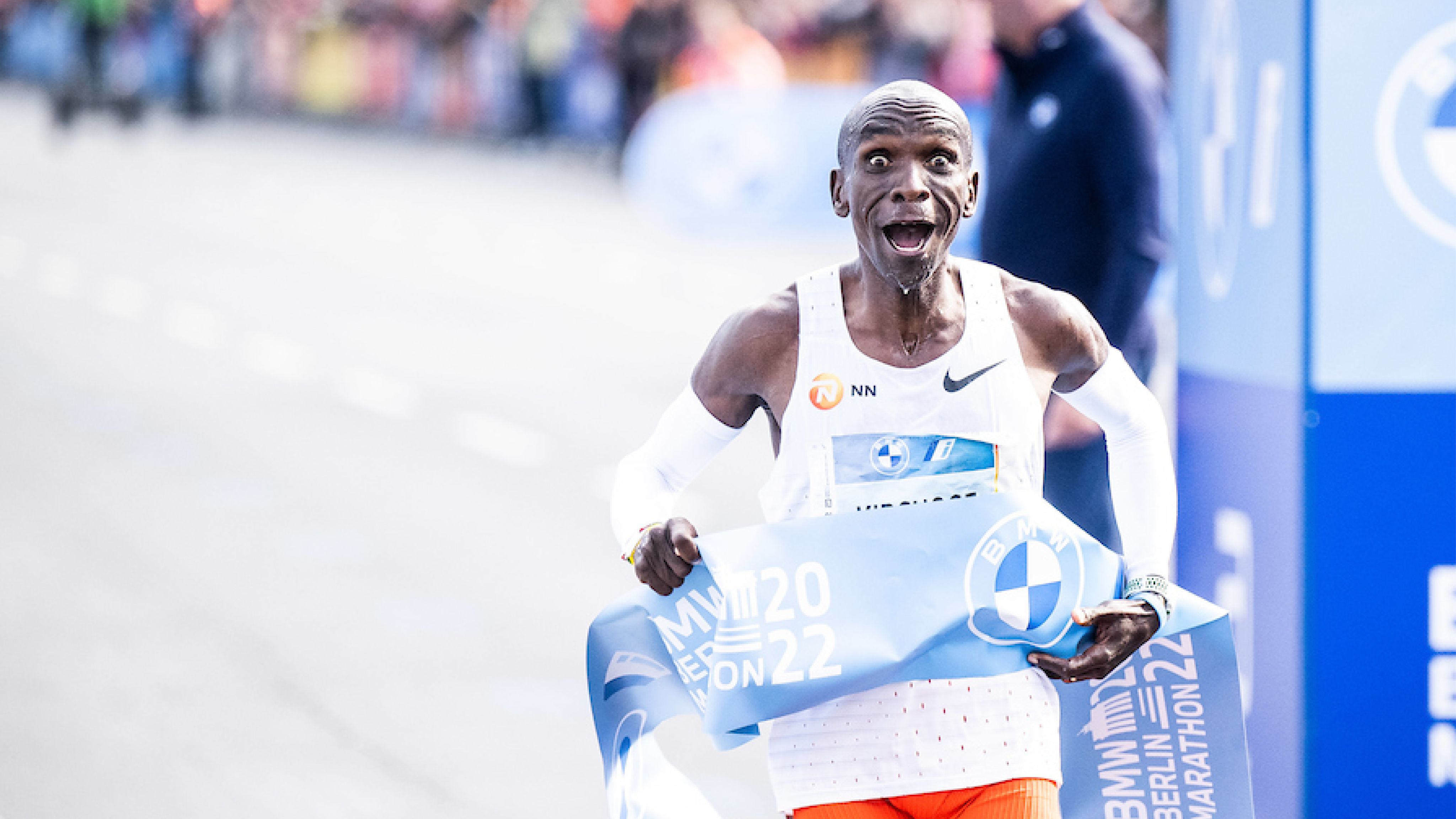
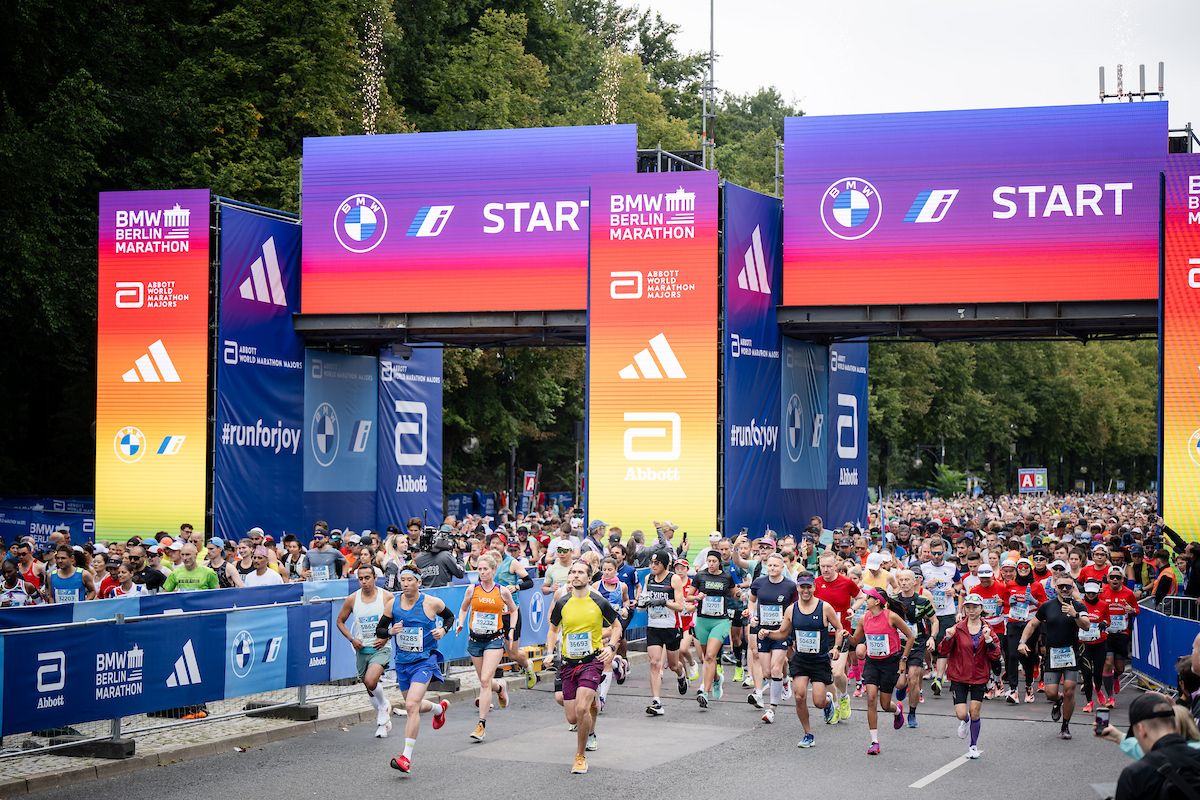
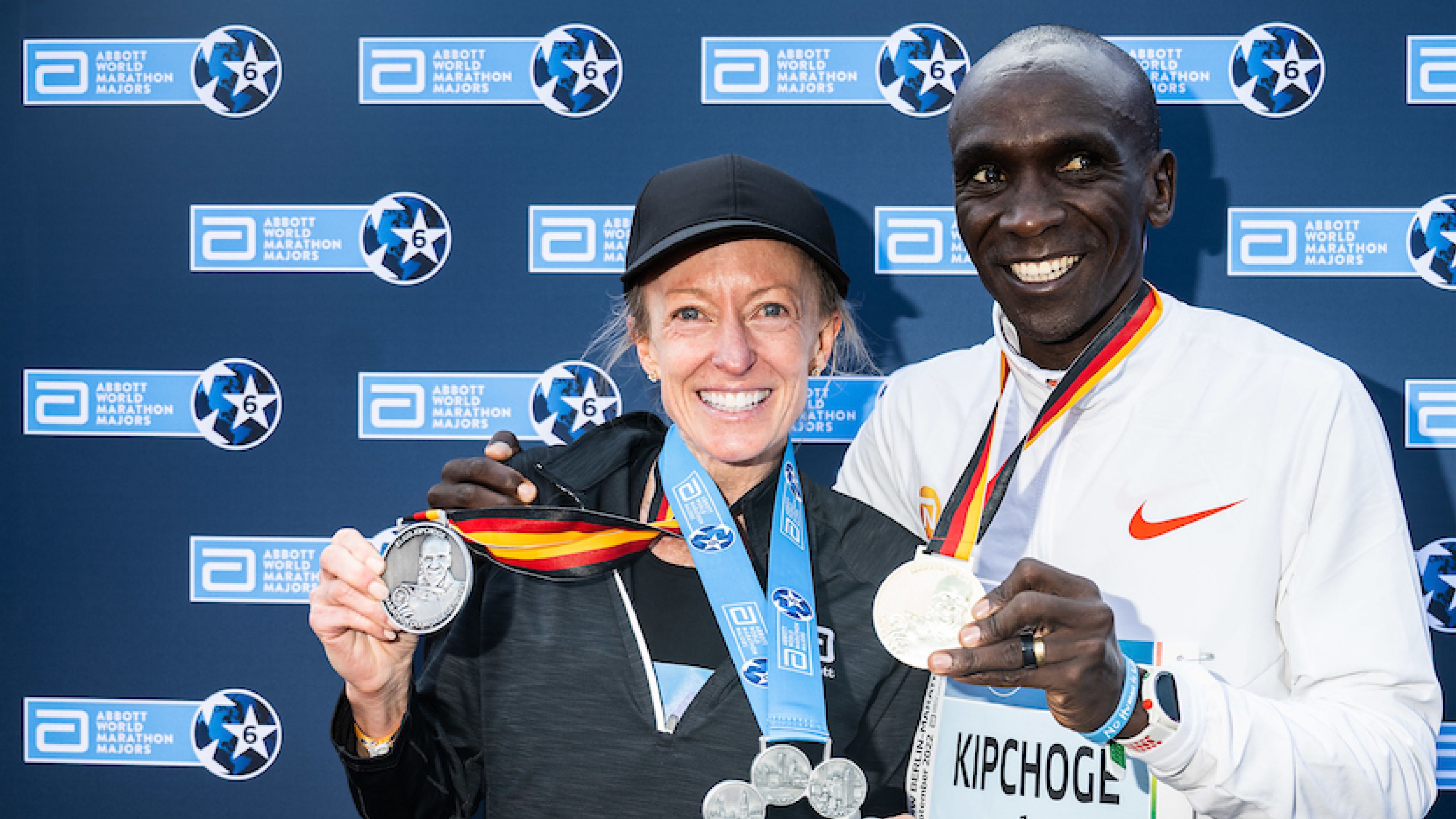
SUPER SIFAN
Sifan Hassan’s Olympic triumph was another chapter in a comic book career that we can never look away from
If you were to lock a bunch of script writers in a room for a week, tasked with coming up with a story equally as compelling as the life and times of Sifan Hassan, they would fail.
There is no imaginary figure the finest minds in Hollywood could conjure that would hold a candle to the story of the woman who became Olympic Marathon champion on August 11.
From her beginnings as an Ethiopian teenage refugee seeking a new start in the Netherlands, the Sifan story has never stopped engaging the athletics public. It is the must-watch movie you can’t miss, the comic book you can’t put down.
Travelling far from home as a teenager in search of asylum, she first emerged as a prospect at her athletics club in Eindhoven, where her potential was quickly spotted and she was welcomed into the Dutch national set-up.
A 1,500m world championships bronze in Beijing in 2015 registered her on the global stage, but she could not medal at the 2016 Rio Olympics, coming 21st and fifth in the 800m and 1,500m respectively.
Her first visit to the top of a global podium came in Doha in 2019 when she won world gold in the 1,500 and 10,000m.
The first glimpse of her appetite for the historic came in the delayed Tokyo Olympics in 2021 when she attempted the treble of 1,500, 5,000 and 10,000m.
This is where her penchant for in-race drama also began to appear. In her 1,500m heat, she was sent tumbling to the floor as the bell sounded, leaving her more than 20 meters down with less than a lap to go, and her hopes of a place in the final in tatters.
It was like watching Tyson Fury take a count flat on his back, only to rise from the canvas at the last second and carry the fight back to his opponent.
Hassan got up, switched on the afterburners, and stormed back to the leading pack before overtaking them all to win the race.
In the end she came up just short of her treble gold goal, with 1,500m bronze and victory in the other two.
If that achievement cemented her as one of the finest track athletes of her generation, it clearly didn’t sate her appetite for success. Less than two years later she took the leap to the marathon. London would be the stage for her debut.
In one of the strongest women’s fields ever assembled, it appeared she had bitten off more than she could chew.
Bent over in pain at 10km, she stopped to tend to a sore quad that looked as though it was going to end her first 26.2-mile foray.
She clearly had other ideas. After a stretch and a grimace, she got back into her running, and by the time the leaders were on the Thames embankment, Hassan was back in touch.
After a close call with a race motorbike as she veered across the road to reach a drinks station, Hassan deployed her track finishing speed to record a famous victory on The Mall.
Later that year she went to Budapest for the World Championships, her focus back on the oval but with one eye on the Bank of America Chicago Marathon in October of that year.
Her first target was the 10,000m, where she surged to the front in the final lap before a spectacular fall less than 50 meters from the finish robbed her of any sort of medal at all. It was the equivalent of the world’s best footballer skying the ball into Row Z in front of an open goal.
She was beaten into second and third place in the 5,000m and 1,500m by the incredible Kenyan Faith Kipyegon.
With just six weeks between the championships and her Chicago debut, few gave her much hope of making a serious bid to beat defending champion Ruth Chepng'etich. The Kenyan was the third fastest woman in the world at the time and had won back-to-back races in the Windy City.
She took the race out hard and traded the lead with Hassan as they reached the 15-mile mark. At 17 miles, Hassan made her move and never looked back. Incredibly, with roughly half the usual training for a marathon under her belt, she was on world record pace until the late miles.
She settled for storming to the second fastest time in women’s marathon history, 2:13:44.
In early November, just 197 days after setting foot on a marathon course for the first time in her life, Hassan was crowned AbbottWMM Series champion. Her London and Chicago wins had given her maximum Series points, tied with Hellen Obiri, but elected champion by the six Majors race directors.
2024 would all be about Paris, and the speculation quickly gathered pace that she may attempt something not seen since 1952, when Czech legend Emil Zátopek took on – and won – the 5,000m, 10,000m and marathon at the Helsinki Games.
Initially, Hassan entered the 1,500, 5,000 and 10,000m plus the marathon. As the Games drew closer, she sacrificed the 1,500, but a ‘Zátopek’ treble was still on.
In reality, the comparison to Zátopek's accomplishment was to ignore the completely different eras the two were competing in. The prospect of just medaling was far-fetched enough, never mind taking all three golds, and Zátopek's decision to run the marathon was last-minute. Arguably, by the time Paris rolled around, it had become Hassan’s strongest distance, despite a lackluster showing in Tokyo in March.
Still, she was cramming in the workload.
Her first race was the 5,000m heat on August 2, with the final three days later on August 5 and the 10,000m final on Friday August 9, giving her 37 hours before starting the marathon on the Sunday.
By the time she got there, she had pocketed two bronzes, and a ‘Zátopek’ of the modern era was on.
But entertaining that prospect was to overlook the incredible strength in the women’s marathon.
Hassan was up against the world record holder, Tigst Assefa, the defending champion Peres Jepchirchir, who had beaten Assefa just months earlier in London. Then there was the double Boston champion and current New York City champion Obiri, who would certainly be undeterred by the hills that lay in wait, and the 2022 New York victor Sharon Lokedi, as well as 2023 world champion Alemu Megertu.
Hassan never troubled the leaders, allowing the breaks to form and leaving the likes of Jepchirchir to chase them down.
Often, she chose to run on the other side of the road to the main leading pack, seeking tree shade where she could and staying out of trouble.
The grueling hills that came in the second half had blown the men’s race apart. Not so for the women. Hassan watch Assefa make her assault to the top of the worst climb, and as they descended, she was still there, in striking distance of the leaders, conserving her energy until she needed it.
Eventually, the challengers were whittled down. Five became four, became three. Assefa, Obiri and Hassan.
If her performance in London was lingering in the back of her rivals’ minds, it was not a welcome thought. Outkicking this woman was a task no one would gladly take on at the end of a stifling, strength-sapping race.
It was left to Assefa and Hassan to fight it out, and fight they almost did, clashing elbows as Hassan held her line on the final bend as 26.2 miles came down to a 200m sprint.
The Ethiopian had no answer as Hassan found her top gear for the final time, and stormed clear to win one of the best races many onlookers had ever seen.
Whatever comes next for this remarkable athlete, her golden Sunday morning in the Parisian sunshine will be hard to top.
Then again, this is Sifan Hassan. You would not bet against her.
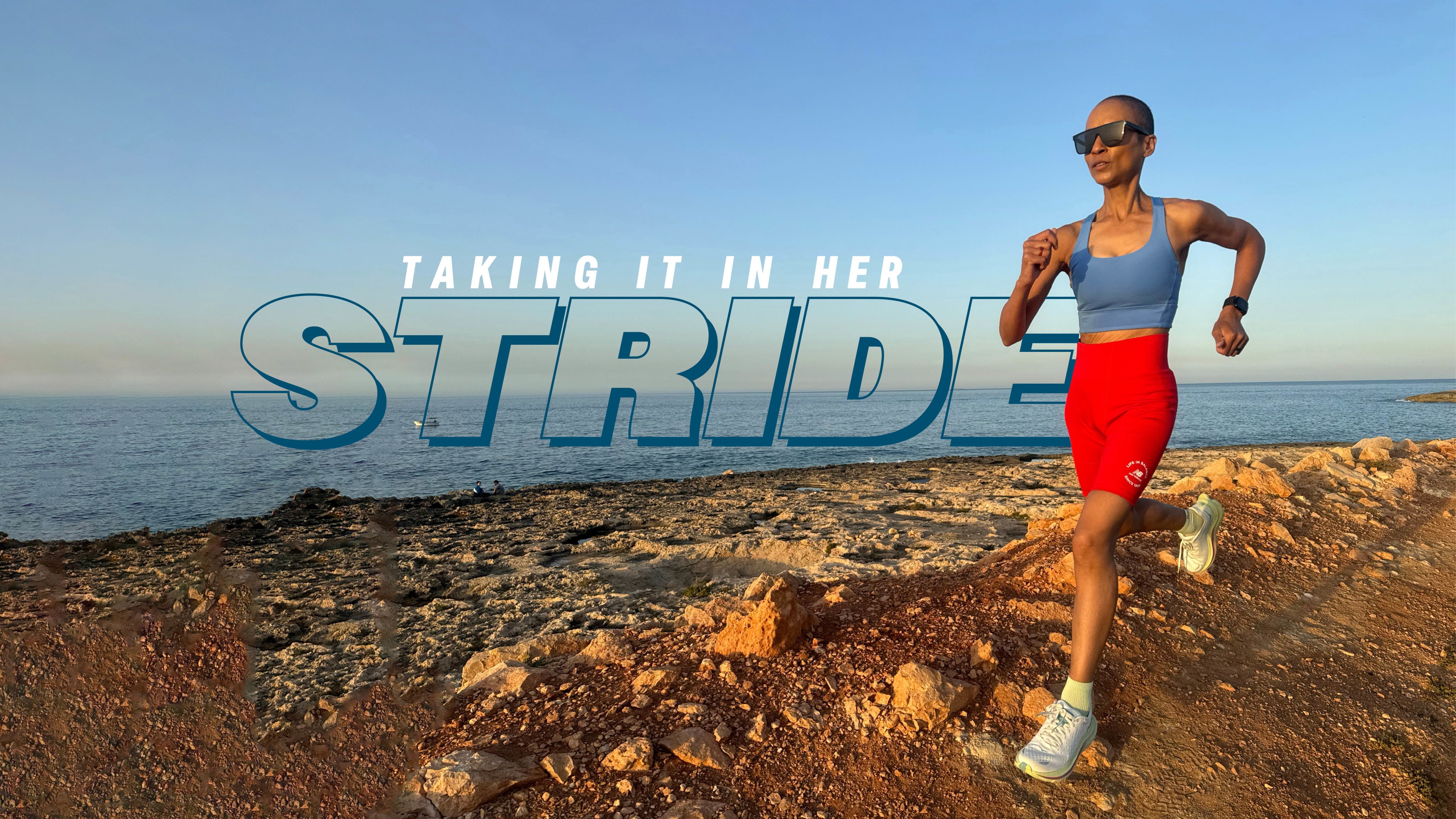

Award-winning broadcaster, cancer survivor, record breaker and marathon runner – these are just some of Adele Roberts' many achievements.
As the countdown to the BMW Berlin Marathon begins, so too does the countdown to her biggest running challenge to date. Six marathons in eight months, two of them in the same week! It’s going to be quite the journey to earn that Six Star medal
words Louise Sylvester
Adele Roberts is used to facing challenges and has a track record in overcoming them in style.
This is a woman who took on bowel cancer (and won) and soon after set a marathon world record while still recovering from her treatment. She doesn’t do things by half and this September she will be embarking on another challenge, all to raise money for Cancer Research UK and Attitude Magazine Foundation.
But let’s rewind back to 2021. Adele had been living life to the fullest and enjoying some normality after the craziness of COVID-19 when she noticed something wasn’t quite right when she went to the toilet.
“I was in the shape of my life at the time, but looking back now, so many of the bowel cancer symptoms were there – I just assumed I was losing weight because I was running a lot but then I also started to notice blood in my poo,” she tells MAJORS.
Adele didn’t want to bother the GP, but when it became more regular she knew she had to get it checked out. The doctor sent her for a scan on October 1. Before the month was out, she had a tumor removed from her bowel.
What followed were six months of chemo and an operation to provide Adele with a stoma to remove waste from her body as it recovered.
This is the point when most people would crumble with a ‘why me?’ attitude, but for Adele it was life-changing in a different way.
“At the end of the operation I felt lucky. There were no guarantees and I saw it as a second chance at life. I knew it was going to be hard with up days and down days but I was determined to maintain a positive mindset.”
That positive mindset led to the decision to take on the TCS London Marathon in 2023, just six months after her operation, as a way to keep looking forward rather than to the past.
She says: “For me it was all about setting daily goals, no matter how small, and achieving them. Those small steps led to bigger steps which in turn led to training for the marathon and that led to breaking the record!”
But how did she find running with her stoma, AKA ‘Audrey’? “Having a stoma is challenging, it keeps me alive but it is like having a naughty baby strapped to your front. I have to time my runs and fuel as much as I can but never too much. I have found that adopting an ‘ultra runner’ technique of ‘fueling on the go’ is what works best.”
“To have run a PB with a stoma just 18 months after my cancer diagnosis shows what a positive mindset can do. My body had no business allowing me to go that fast!”
‘Naughty baby’ or not, it is thanks to Audrey that Adele can call herself a record-breaker, with her London time of 3:30:22 securing her the title of ‘fastest woman to complete a marathon with a stoma bag’.
“I wanted to raise more awareness about what people can achieve with a stoma. Lots of those who have a stoma really struggle and don’t always realise they can work out with one. I wanted to show what is possible and that you can still live life to the full like everyone else.
“To have run a PB with a stoma just 18 months after my cancer diagnosis shows what a positive mindset can do. My body had no business allowing me to go that fast! I truly believe that the mind leads and the body follows in all aspects of life. Running is 80% mind over matter!”
With that in mind, Adele is excited to embark on her next challenge, becoming a member of the Six Star Hall of Fame.
“When I was a kid we never really went on holiday and I haven’t been to any of the cities other than New York.
“I am especially looking forward to running there as on my previous trip I wore a t-shirt that said ‘runNYC’ and at that time to have run a marathon would have been impossible for me. I was not in a good place emotionally or physically. So when I cross the finish line this year I will have come full circle and I know I am going to cry!”
Mindful of what a tough challenge lies ahead, Adele has decided to train properly ‘for the first time’ in her life with speed work, tempo runs and cross training all playing their part. But she is also keen to stress that “this is a set of marathons, it is not a sprint.”
Reflecting on what has been a tough few years, Adele has a final word of optimism: “Bad things happen to people in life but the story is rarely told that sometimes ‘bad things’ can make you happier, fitter and more grateful for life. What has happened to me has truly made me a better person.”
Sydney In Her Sights
Reigning F55-59 Age Group World Champion Jill Wilkie ran 2:57:16 in Chicago to take gold. Now she is heading to Sydney to defend her world title on her doorstep
When did your love of running begin?
I’ve always loved sport, it was a big part of my life growing up but I didn’t get into running properly until after I had had four kids in less than five years and knew I needed to do something for myself again. Running was something I could do while they all slept when they were younger, but it really took off when we moved from the UK to Australia. The climate combined with my children being that bit older meant I could get out more often!
And running marathons, when did that begin?
I ran my first marathon in Melbourne in 2013. I had completed a half marathon with a friend and found I loved it so much that the prospect of running double the distance was tempting. I also did the marathon with a friend and it was a great experience - we jogged around the course chatting and in doing so both managed to qualify for Boston! It was at this point I thought to myself, 'I wonder how well I could do if I put in ‘real’ effort’!
And so here we are over 10 years later and 14 marathons in… what has kept you going?
The determination to do better each time. I love the process of the training, reaching your peak and feeling so incredibly fit. It is hard work, but I really love it. The sense of achievement you feel when you reach the goal is unbeatable.
Tell us more about being in the Six Star Hall of Fame. What’s been a highlight of the journey?
Making a holiday of all these amazing trips. Starting and finishing each marathon with the same group of people and feeling that sense of achievement together. There is also no better way to see a city!
“Sometimes the best races aren’t the fastest ones, they are the ones where I have felt strongest at the end.”
Do you have a favourite Major, or is that like choosing a favourite child?
It has to be Chicago for me. When I took part in 2023 the weather was great and, of course, it was amazing to achieve my time! Getting the opportunity to attend the awards dinner and sit at a table with all the amazing winners did make me feel genuine ‘imposter syndrome’ – but it was an unforgettable experience all the same.
Looking ahead to Sydney, how excited are you to race there in the Age Group World Champs?
When I heard Sydney was going to host the Age Group World Champs I knew I had to do it this year. I am excited but, as is normal for me this close to race day, I feel nervous and underprepared. I have to remind myself I always feel like this and that the adrenaline and atmosphere on the day will pull me along.
Have you run Sydney Marathon before?
I haven’t taken part in the marathon before but my family and I are regular participants in the City2Surf fun run – so I have a feel for what running in Sydney is like. With a finish line right outside the Opera House, views over to the Harbour Bridge and the Botanic Gardens in the vicinity, it has to be one of the most scenic finishes in the business – I can’t wait.
What is your goal in Sydney – do you have a time in mind?
I never have a time in mind, or a pace – I run to feel. I try not to look at my watch too much and just focus on what my body is saying. In all marathons you have peaks and troughs and you just have to ride those as best you can. My goal is always to finish a race feeling strong, sometimes the best races aren’t the fastest ones, they are the ones where I have felt strongest at the end.
Training: how do you fit it all in?
I’m up bright and early to run at 4am before work or I simply wouldn’t have the time. So I am generally running by myself as nobody else is up for joining me that early! I do enjoy my long runs on a Sunday with my club - Bendigo Bats. In terms of mileage I would like to do more but I probably peak at 50 to 60 miles a week, if I try to do much more than that, this is when the injuries creep in. My coach has a saying that each run has to be a quality run. Not a long one, just a quality one.
What else do you do to stay marathon fit?
I have at least one session in the gym, maybe two. A series of injuries made me realize it is really important to work on strength as you get older. I am a ‘runner who cycles a bit’ so I also enjoy one – usually around 50km – ride a week.
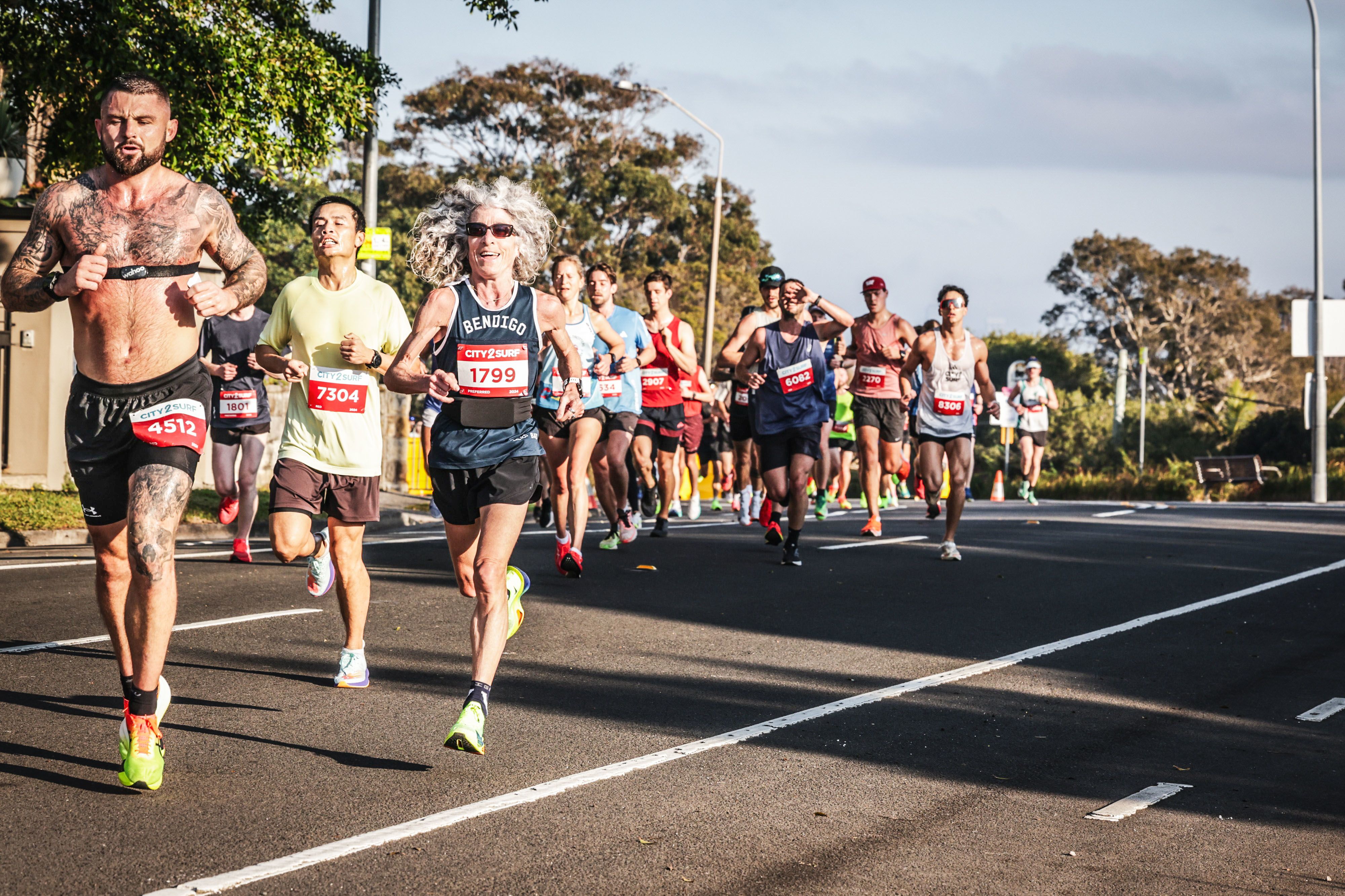
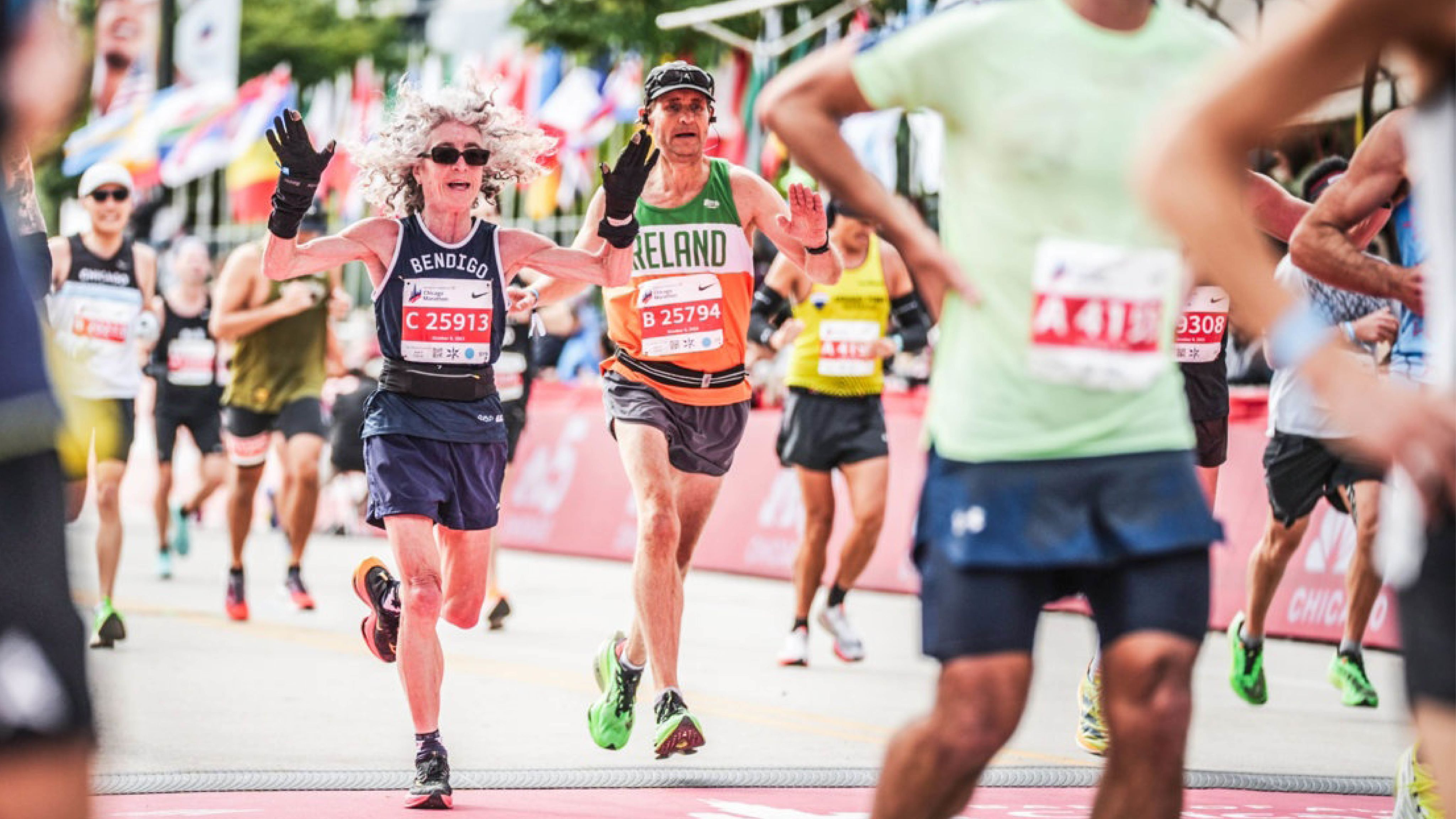
Age Group Races in Focus
Take your pick from some fantastic marathon events to earn your spot in the AbbottWMM Marathon Tours & Travel Age Group World Rankings
St George Marathon
A downhill course with a penchant for drawing out personal bests, combined with breathtaking scenery and enthusiastic volunteers create an unforgettable experience at the St. George Marathon! This iconic race winds through Utah's stunning landscapes, offering runners a challenging and awe-inspiring journey from Pine Valley Mountains to the heart of downtown St. George.
TCS Toronto Waterfront Marathon
Discover Toronto's iconic marathon weekend! Join 30,000 runners at the 35th TCS Toronto Waterfront Marathon on October 20, 2024. Known for its flat, fast and scenic course, don’t miss the vibrant, welcoming atmosphere and the best community support in Canada at this World Athletics Elite Label race.
Istanbul Marathon
A handful of races offer you the chance to cross an international border – only one offers the chance to run into another continent. Thanks to its unique setting – straddling the Bosphorus strait, which separates Europe and Asia – Istanbul Marathon offers a race-day experience unlike any other. To experience this unique experience on November 3, register now! The last day to register is October 14.
TCS Amsterdam Marathon
Amsterdam is a super popular event on a flat, fast course with an Olympic stadium finish. It is also a city where you will very much enjoy the post-race celebrations on offer. A World Athletics Platinum Label Road Race that for years has had one of the fastest courses in the world, in the ranking of fastest marathon cities - this one takes fourth place! Highlights of the course include the start and finish in the Olympic Stadium, the passage through the Rijksmuseum and along the Heineken Experience.
Yorkshire Marathon
On the go since 2013, the Yorkshire Marathon showcases the true beauty of the city of York and surrounding Yorkshire countryside all in one. Featuring an exceptionally flat and fast course, it is a great route for runners chasing a personal best or beginners starting on their running journey. Watch the city of York come alive in celebration of this iconic Yorkshire sporting event and sign up today!
How Much Water Do You Need to Drink Every Day?
Proper hydration is more complicated than eight glasses a day
Water is essential to your health. Making up about 60% of the adult body, water is important in so many ways, such as helping to cushion your joints, control your body temperature and even support your mood.
You’ve probably heard the advice to drink eight glasses of water a day. But does this recommendation apply to everyone, and is water the only fluid that counts? Read on to learn about factors that might affect the amount of fluid you need — as well as simple strategies to ensure you get enough.
Daily Water Intake: What You Need to Know
Your body naturally loses water as you breathe, sweat and use the bathroom throughout the day. But if you lose more water than you take in, dehydration can occur. Beyond thirst, dehydration can make you feel dizzy, mess with your mood and memory, and result in digestive issues. In serious cases, it can even lead to confusion or problems with your kidneys and heart.
The good news is there are many hydrating options available in addition to water that can help meet your needs. Fluids like soup, milk, juice, and even coffee and tea all count toward your daily intake. Although they may not be as hydrating as water, these fluids still help keep you hydrated throughout the day.
You might be surprised to learn that food can be part of the solution, too. In fact, 20% of your daily fluid intake should come from foods. High-water-content foods, defined as foods that contain 70% or more water, offer additional support for meeting your needs. Munching on them supports your daily fluid intake while also providing vitamins and minerals. Many fruits, veggies and even some dairy products help with hydration, such as:
- 70–79% water: Bananas, avocados, cottage cheese, ricotta cheese, baked potatoes, cooked corn, shrimp
- 80–89% water: Fruit juice, yogurt, apples, grapes, oranges, carrots, cooked broccoli, pears, pineapple
- 90–99% water: Fat-free milk, cantaloupe, strawberries, watermelon, lettuce, cabbage, celery, spinach, pickles, cooked squash
Factors That Affect Hydration Needs
Daily water intake needs aren't one-size-fits-all. Eight cups may be enough for one person but leave another person under-hydrated. In general, the recommended fluid intake is between 11.5 to 15.5 cups per day for adults and between 7 to 14 cups per day for children and adolescents. However, a variety of other factors play a part in determining how much you need, including:
- Gender
- Age
- Body weight
- Living in a hot climate
- Level of physical activity
- Pregnancy or breastfeeding
- Running a fever
- Having diarrhea or vomiting
If you’re experiencing influenza/flu or a stomach bug with diarrhea or vomiting, oral rehydration solutions like Pedialyte can help restore the fluid and electrolyte losses that can accompany these conditions.
Older adults, young children and babies have unique challenges when it comes to managing the risk of dehydration. Older adults might have compromised mobility, struggle to identify feelings of thirst or have conditions such as diabetes or kidney disease that can exacerbate dehydration. In babies and young children, vomiting and diarrhea are common causes of dehydration. Because they can’t clearly communicate their needs or keep themselves hydrated, it’s important for parents or caregivers to ensure babies or young children are getting enough fluids.
Beyond counting cups of fluid, how do you know if you’re getting enough? The color of your urine can tell you a lot. If your urine is pale yellow, it is a good sign you're well hydrated. Dark yellow or amber urine can be a sign of more serious dehydration that may in some cases require medical attention.
Practical Tips for Upping Fluid Intake
If you're struggling to stay hydrated, you're not alone. It’s estimated that about 75% of Americans experience chronic dehydration. Here are a few pointers to increase your daily fluids:
- Pay attention to your body's signals and drink when you feel thirsty, especially in hot weather or during physical activity.
- Choose water as your primary source of hydration.
- Carry a water bottle with you and remember to refill it regularly, especially in between meals.
- Consider adding flavor to your water with a squeeze of lemon or lime, cucumber slices or fresh mint or basil leaves for a change of pace.
- Keep Pedialyte Fast Hydration powder packs on hand to help you rehydrate when water isn’t enough.
- Use reminders on your phone, calendar or smartwatch to drink water regularly.
- Monitor your intake and set hydration goals in a 'water tracker' journal.
- Incorporate more high-water-content foods into your meals.
- Experiment with herbal teas! These are caffeine-free and come in a variety of flavors.
Adequate hydration supports both your physical and mental health. Aim to consume enough fluids to meet general guidelines each day but remember that factors like being sick and even hot weather may mean you need to drink more. Talk to your healthcare provider or a registered dietitian to get advice on your specific needs and make a plan to stay hydrated.

GLOBAL
RUN CLUB
EARN AN INVITATION TO THE 2025 AbbottWMM MTT AGE GROUP WORLD CHAMPIONSHIPS
200 invitations available for the top finishers in each age group in the fall 2024 edition of the Global Marathon
This month (September 2024) launches the fall edition of the Global Marathon, the biannual challenge offered through the Global Run Club that provides runners the chance to earn an invitation to the 2025 MTT Marathon Tours and Travel Age Group World Championships event, set to take place within the TCS New York City Marathon.
The Fall 2024 Global Marathon will run from September 15 through November 3. Your goal is to complete a full marathon distance, either as a race or virtually on your own. If your results are one of the top 200 (spread across all age groups), you have a chance to earn an invitation to compete in the Marathon Tours and Travel Age Group World Championships.
Runners aged 40+ are eligible to participate, so head to your Global Run Club account and register today! Registration will cost $20, and you’ll have the option to purchase the Fall Global Marathon Medal for $25 (while supplies last).
Visit your Global Run Club account to view all the challenges available this month, and we’ll see you on the leaderboard!
SEPTEMBER CHALLENGES
- 1-Mile Time Trial (September 1)
- September Road to the Majors (September 1 – 8)
- Sydney Marathon Challenge (September 13 – 15)
- Test Your Tempo 5KM Challenge (September 20 – 22)
- Berlin & Chicago – 20 Mile Marker
- 50 Mile Challenge
- 100 Mile Challenge
- Fall 2024 Global Marathon
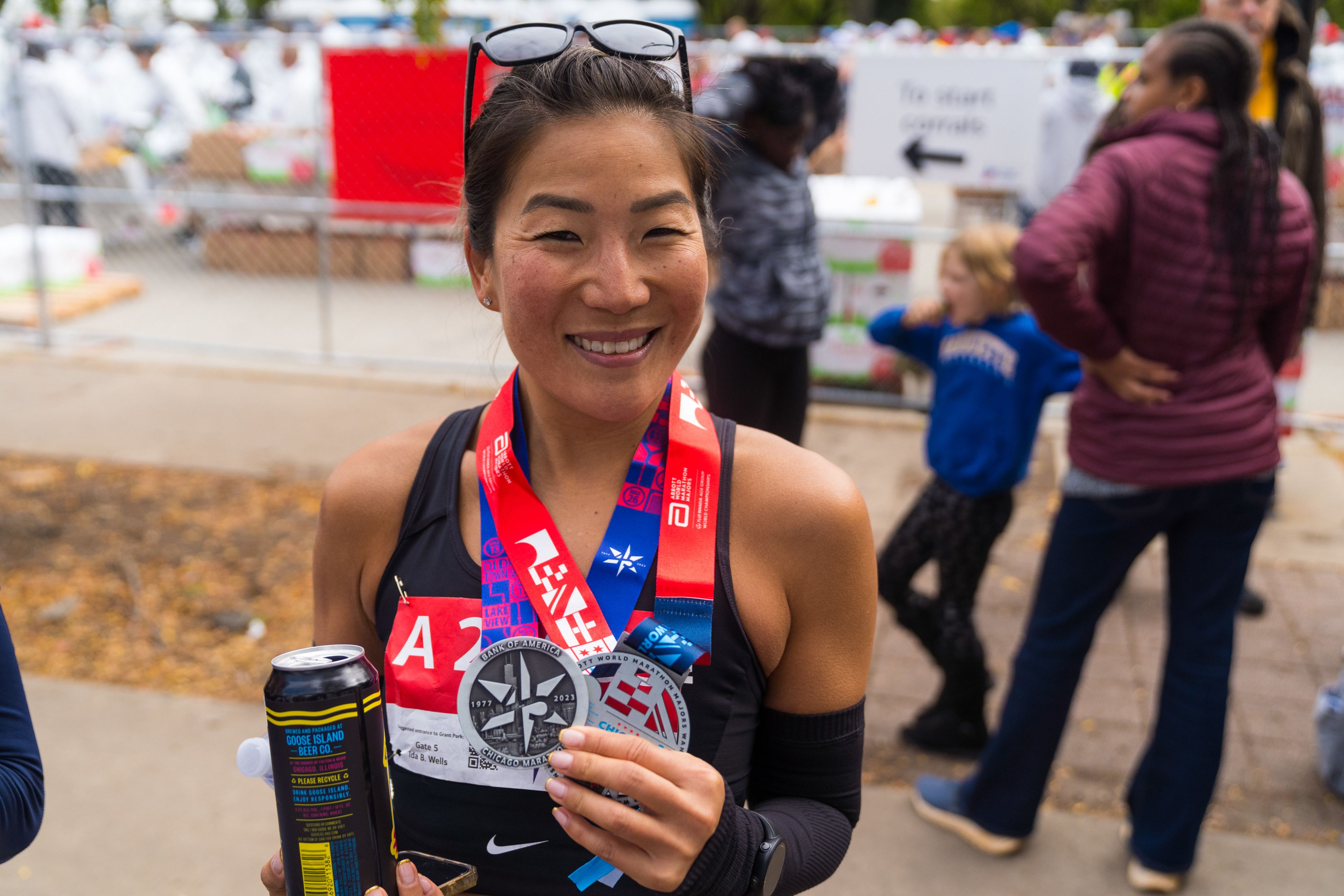

MEET THE TEAM
In a new feature for MAJORS, we will Meet The Team behind the Abbott World Marathon Majors magic. First up is our chief ‘statto’, Stewart Haynes
How long have you worked at Abbott World Marathon Majors?
Since October 2018, so coming up for six years now.
What is the best part of your job?
I would have to say that it is the diversity of the role as it covers so many areas of the organization. It is a busy, but incredibly fulfilling job and one that I struggle to pinpoint a 'best part' of.
So tell us more about the role then?
I work with event organizers and timing companies from around the world (we have over 370 Age Group World Ranking events each year). I also get to help runners find their stars/results, and to qualify for the Age Group World Champs. Then there is the excitement of meeting runners at Majors expos and looking after our 6 Star Finishers on race day. I am also involved in coordinating and planning several areas within World Marathon Majors including Age Group World Champs, Six Star Finishers, Systems and Processes. All this and I still have time to create stats and data reports for all areas of the organization.
What are your favourite races to work on?
Two of the Majors that I most enjoy working on are Tokyo Marathon and TCS London Marathon. Tokyo because I relish the logistical challenge of having 2500-3000 Six Star Finishers and London because being from the UK, I find the finish line back drop of Buckingham Palace and the Mall incredibly iconic.
Have there been any result bloopers over the years?
Thankfully no! As you’d expect, the results processing just sits in the background and goes un-noticed (unless something goes wrong).
Are you a runner yourself?
Yes, I’ve run for the last 35 years with a 10K best of 32:46 and a handful of marathons too, although I now run mainly for health and fitness (and the ability to eat as many cakes and sweets as I like). Annoyingly, injuries combined with general wear and tear have finally caught up with me and so I’ve discovered road cycling as a way to maintain fitness and eliminate the impact of running.
What is your ‘dinner party’ marathon chat? The one that gets people talking!
It used to be ‘more people have climbed Everest than have completed their Six Star journey, but this is no longer the case as the number of Six Star finishers has now risen to 17,032 (correct before Berlin 2024). I need to find another stat!
Speaking of dinner parties, if you could choose three guests who would they be?
The medallists from the 2003 5000m World Track Champs, so Eliud Kipchoge - the greatest marathon runner of all time, Hicham El Guerrouj who still holds the 1500m/1 mile world records which have stood for over 25 years and Kenenisa Bekele - the greatest distance runner of all time (track, cross country, marathon).
What is top of your bucket list?
Not running related at all! It would have to be for Sale Sharks Rugby Union team to win the League again (they last won the title in 2005/06).
BERLIN, SEPTEMBER 30 1990
A MAJOR MOMENT
We all know the phenomenon of ‘hitting the wall’ in a marathon, but the 1990 staging of the Berlin Marathon saw runners ‘breaking through the wall’ as they ran for the first time between East and West Germany…
On September 30, 1990, three days before German reunification, 25,000 people ran through Berlin’s Brandenburg Gate, many with tears streaming down their face. This wasn’t a political statement though; it was the finish line of the Berlin Marathon. The race was being held for the first time since the fall of the Berlin Wall, and in doing so announced itself as one of the world’s most exciting running events.
Due to the division of the city, marathon events before 1990 were limited to West Berlin only, however since that day runners have been able to enjoy a course that covers both sides of the unified city and to feel the rush of endorphins as they too run through Brandenburg Gate towards the finish line.
For 25-year-old Uta Pippig it was a momentous day in many ways. Born in East Germany, Pippig’s victory in a time of 2:28:37 was a course record but also marked the beginning of a new era for the German capital and for the race itself. Remembering the moment, she has said in interviews: “I remember the boundless joy of the people, the relief, tears of joy. The fall of the Wall was a new beginning for many of us. We could actually run through the Brandenburg Gate into another future - together and full of hope.”
The joy of winning the race came second to the elation of the new-found freedom Pippig and many others like her from East Germany were now able to experience. Runners from the East and West were united and able to participate in the race together, something that would have been impossible just months before. The finish line was awash with elation - the significance of the moment not lost on anyone taking part, or spectating.
The 1990 Berlin Marathon was a culturally significant moment and one that undoubtedly played its part in the end of the Cold War; allowing the world to witness first hand the potential of the newly reconnected country. From that memorable win for Pippig to the thousands of runners taking part and the millions watching around the world the race symbolised unity, hope and above all, freedom.



